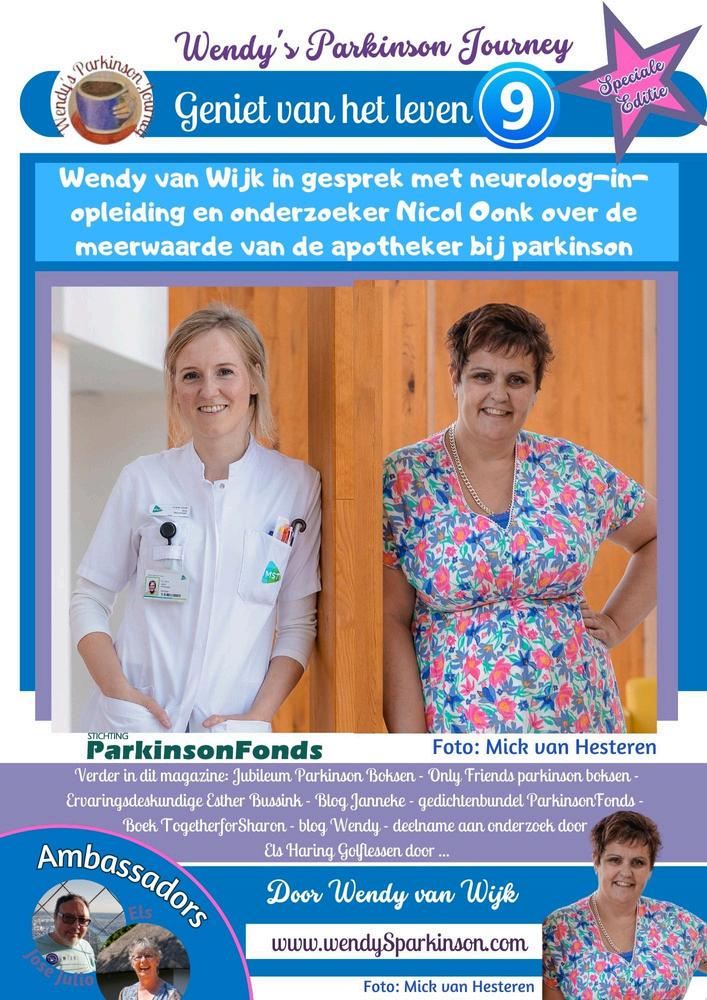Enjoy life
Neurologist-in-training and researcher Nicol Oonk on the added value of the pharmacist in Parkinson's
this magazine:

Neurologist-in-training and researcher Nicol Oonk on the added value of the pharmacist in Parkinson's
this magazine:
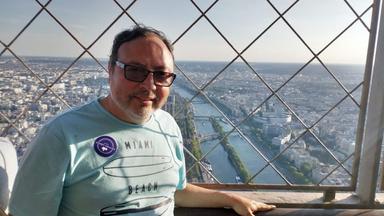
By Wend
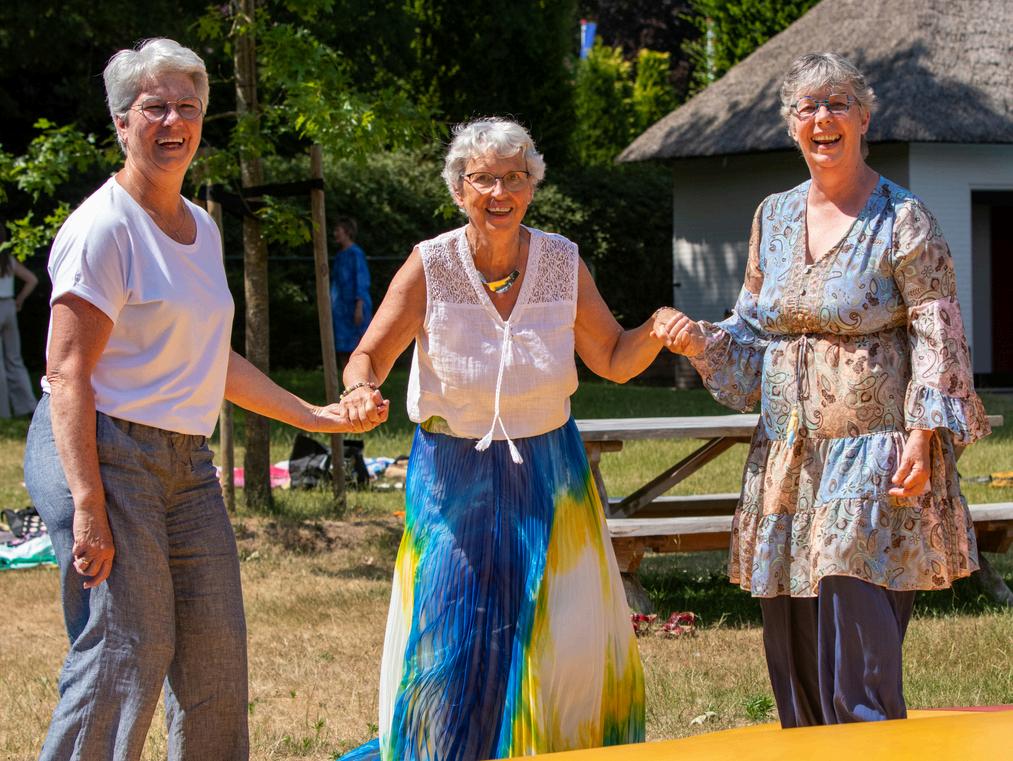

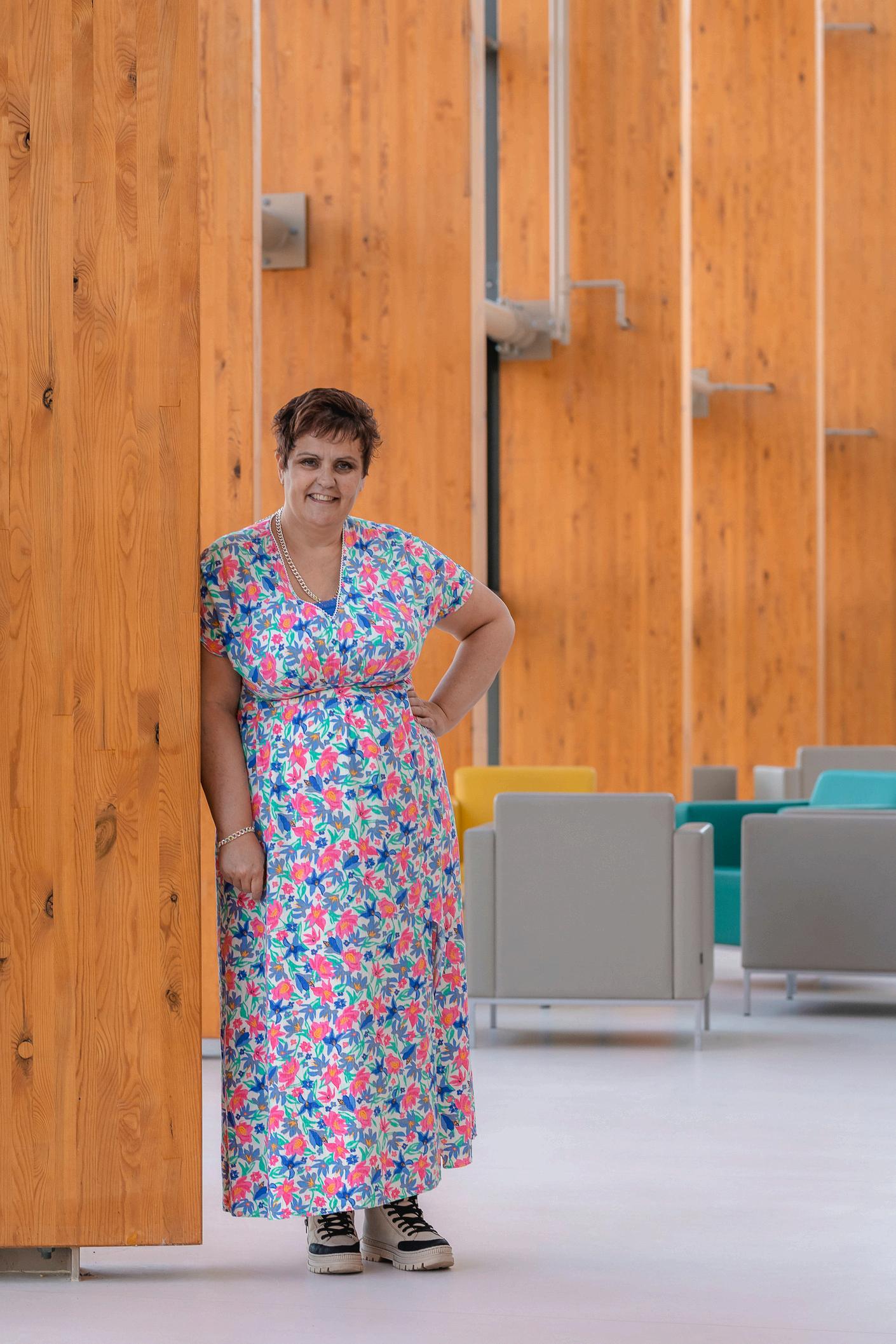
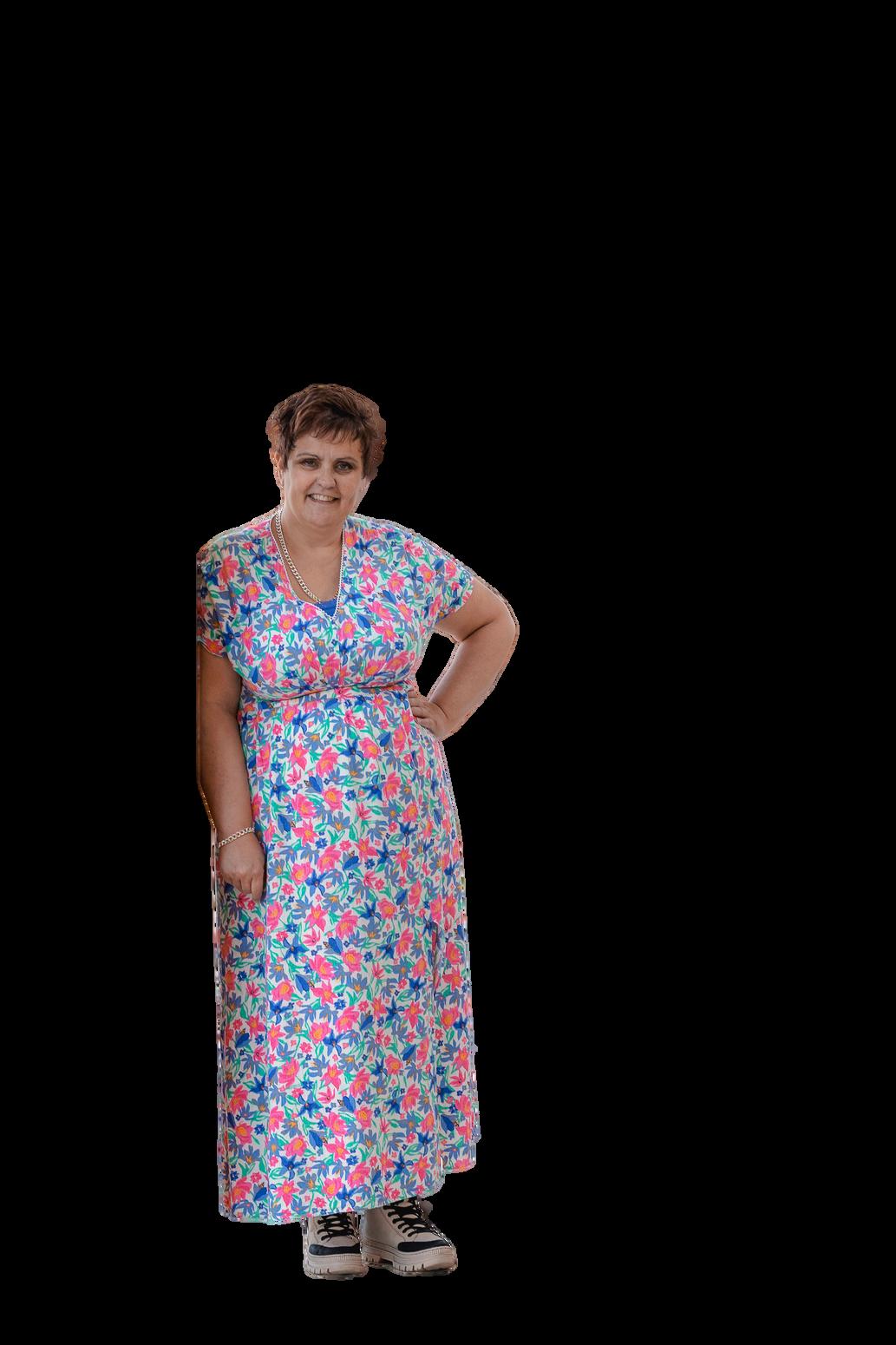

Welcome to my new magazine! It is once again available online for FREE, making it accessible to everyone. Feel free to share it with anyone you like.
And here’s the exciting news: my online magazine is as of now FREE! I've already secured my first advertiser who is eager to be featured. They believe the magazine is well-designed and filled with intriguing information, attracting interest not just in the Netherlands, but worldwide! Advertisements are still welcome—visit www.wendySparkinson.com for more information!
An email has just been sent to my subscribers. You can still join as a free member and receive the magazine directly in your inbox.
No initiative is better than another; together, these endeavors foster connection. Whether you’re organizing an event, writing a book or blog, or creating a gathering space—every effort matters! Take, for instance, Parkinson Boxing, which is appearing in various locations, along with yoga, dancing, and golfing—all activities being organized are wonderful.
Connection is key. In this issue, you’ll find details about the boxing event happening on October 20 at Only Friends, which can be participated via zoom from all over the world. This event aims to connect, raise awareness, and generate funds. Be sure to read the interview with Hans Louwerse and his daughter Anna to learn more about Parkinson boxing.
Enjoy this magazine while I begin working on the next edition: the Christmas special, set to release in mid-December. Before you know it, you'll be gathered under the Christmas tree again!
Wishing you a delightful end to the year!
To me, it involves engaging in activities that truly inspire me, providing a sense of purpose each day.
I contribute and create for others, and through my endeavors and personal identity, I have formed numerous meaningful connections.
The beautiful appreciation I regularly receive from readers, or even from people without Parkinson's who admire my work, is irreplaceable. "You should definitely keep doing this."
Then there are the reactions and the connection with people from other countries! It feels like a mission, one that brings me a lot of joy. I love my job.
I started doing something that I previously thought wasn't meant for me.
My motto: if something seems fun to you, just start! Take a small step each time. Have fun on your journey!
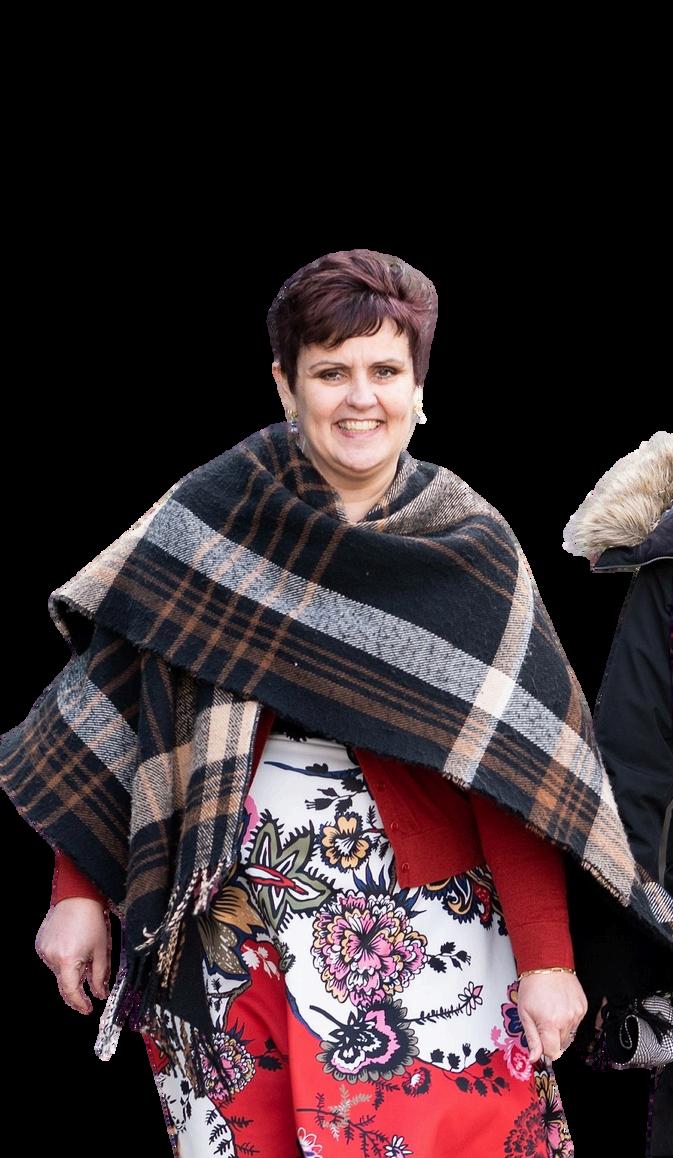
Neurologis-in-training and researcher at Medisch Spectrum Twente
The added value of the pharmacist in the treatment of Parkinson's disease

Nicol: “I envision an expanding role for pharmacists in the management of Parkinson's disease, a trend that
I believe will only continue to grow.”

Photo: Mick van Hesteren

Nicol Oonk, a neurologist-intraining at Medisch Spectrum Twente in Enschede, has researched different facets of medication assessment conducted by public pharmacists for patients with Parkinson's disease.
Wendy van Wijk, the writer of this article, shares: "I traveled to Enschede to interview Nicol about her recently finished research, which received backing from the ParkinsonFonds Foundation for her dissertation. Due to my own experiences with Parkinson’s, I was particularly intrigued by her discoveries. The scientific study, conducted over a span of ten years, centered on medication reviews, aiming primarily to assess whether these reviews could enhance the quality of life for individuals with Parkinson’s who live independently."
Nicol's research began in 2014. During that period, community pharmacists were required to perform numerous medication reviews every year; however, it was unclear which individuals or groups affected by Parkinson's would truly benefit from this process. A medication review involves a comprehensive and systematic evaluation of all prescriptions for someone with Parkinson's. This assessment considers various aspects, such as appropriate indications, possible side effects, the patient's understanding of their medications and the corresponding intake schedule, as well as overall usability. The active involvement of the individual with Parkinson's and their specific medication requirements is a key principle, ensuring effective collaboration with all healthcare providers involved. "Our objective was to investigate whether the pharmacist's insights on the often complex medication regimens of individuals with Parkinson's could enhance their overall treatment," Nicol explains.
Wendy van Wijk, the author of this article: For this interview I travelled to Enschede to speak to Nicol about her recently completed research, the dissertation of which was supported by the ParkinsonFonds Foundation. “Because of my own experiences with Parkinson’s, I was naturally interested in her findings.” The scientific study, which took ten years, focused on medication reviews, with the main goal of determining whether this could improve the quality of life of independently living people with Parkinson’s.”

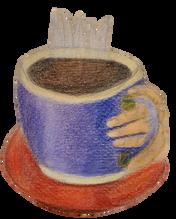

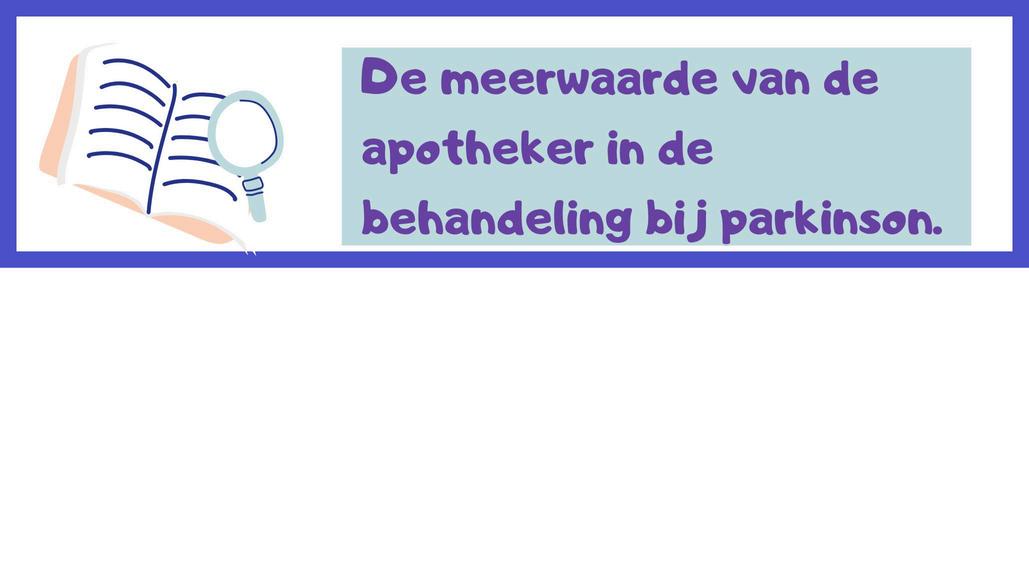
Individuals with Parkinson's often need to consult various specialists, including a neurologist, cardiologist, and general practitioner, each managing different aspects of their medication regimen. The pharmacist plays a crucial role by having a comprehensive view of all the medications a patient is taking. "They not only identify previously overlooked side effects and interactions between drugs but also consider the individual's unique circumstances. Even minor adjustments can lead to significant improvements. It is important to evaluate whether the current medication plan is ideal and determine if additional aids are necessary to ensure timely medication adherence. Consequently, the preferences and desires of the person with Parkinson's are understandably vital," Nicol elaborates.
Nicol: “Every person responds differently to medication. It is therefore essential to tailor a medication schedule to the individual. Medication can supplement the dopamine deficiency, but unfortunately we cannot stop the disease itself. As the disease progresses and less dopamine is produced in your brain, more medication is needed to treat the symptoms. In addition, other medications may be needed for non-motor symptoms. However, higher doses and more medication can more easily lead to medication-related problems. That is why it is important to adjust the dosage as much as possible, but in such a way that the treatment is effective.”


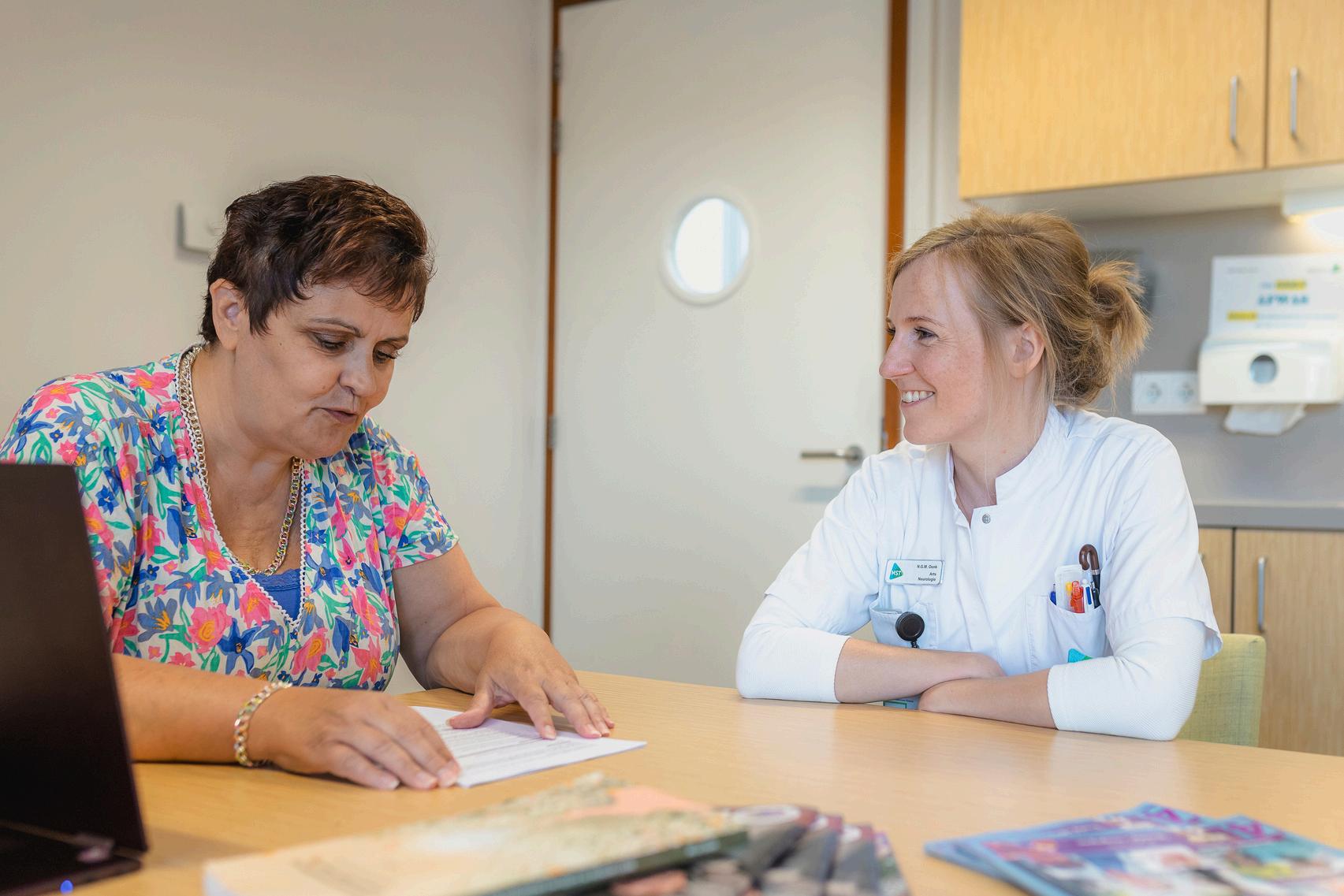
The study revealed no significant difference in quality of life between participants who underwent a medication review and those who did not. This suggests that routinely conducting comprehensive medication reviews may not be beneficial for all individuals with Parkinson's. Nonetheless, having an optimal medication regimen is certainly advantageous, and this can be achieved through various means. Nicol highlights the vital supporting and advisory role of the pharmacist in this process. Often perceived merely as medication dispensers, pharmacists play a crucial role, especially in complex treatments where medication is key and customization is necessary. Their expertise is particularly valuable within a multidisciplinary team, collaborating with neurologists, general practitioners, and other healthcare providers. By addressing or preventing medication-related issues and offering tailored advice, pharmacists can help patients regain control and potentially avert the need for additional care early on. Furthermore, the accessibility of public pharmacies can be a significant benefit for those using Parkinson's medication.

The added value of the pharmacist in the treatment of Parkinson's.
Nicol emphasizes the importance of good cooperation: “It must be a good interaction between the person with Parkinson's and all the care providers involved: including the neurologist, the Parkinson's nurse, the GP and, in this case, the pharmacist. The person with Parkinson's and his/her wishes and preferences are central to this.”
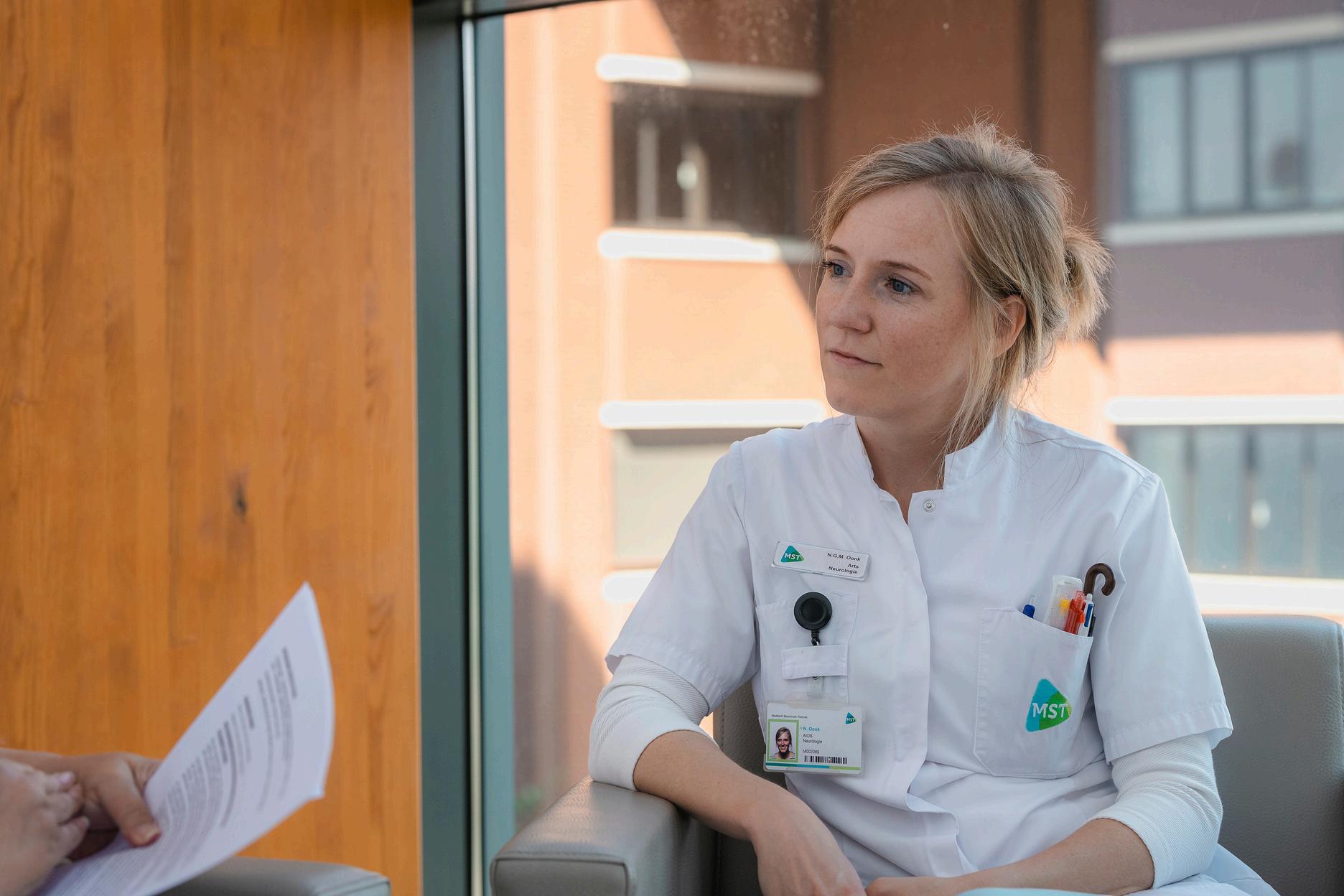


For effective medication management, seamless communication among care providers is essential. It is crucial that care providers stay updated on each other's observations and any changes in medication. However, this can still pose challenges; pharmacists often lack access to hospital files, which may contain important medication agreements or proposals.
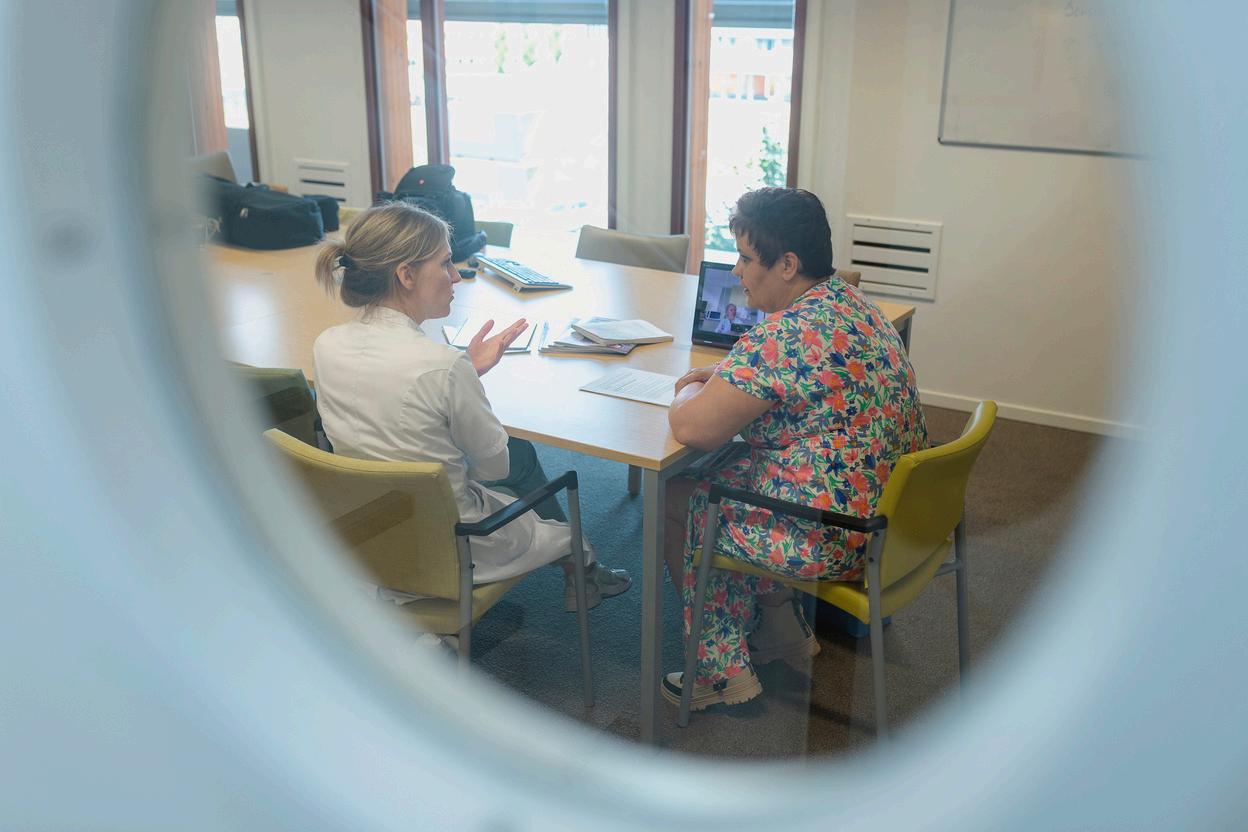
These connections are established between the neurologist and the individual with Parkinson's. When everyone is informed, the entire treatment team can effectively address any issues that arise. Thus, having clear communication channels, where care providers can easily consult one another, is crucial.



Another example of exceptional care from the pharmacy is the 'Farmabuddy teams,' which consist of a pharmacist and a pharmacy assistant, both trained in Parkinson’s disease. These Farmabuddies serve as permanent contacts for patients, informal caregivers, and other healthcare providers, ensuring they are easily accessible. By understanding a patient's individual circumstances, they can promptly identify any medication issues. Nicol explains: “If there's a problem with the medication, it's easier for the person with Parkinson’s to raise the alarm. The pharmacist can review your medication schedule with you and provide guidance on specific concerns.”


Nicol: “While our research emphasizes symptom improvement, understanding the underlying causes of the disease is equally crucial. Knowing the exact triggers of Parkinson's disease could enable us to halt or slow its progression at an earlier stage. Consequently, advancements in Parkinson's research will persist. Currently, there is significant focus on studies related to the intestines and pesticides. This line of inquiry yields fresh insights, with each new study building upon earlier findings. Such progress gives us hope for the future.”
Nicol reflects furthering her c decade of rese
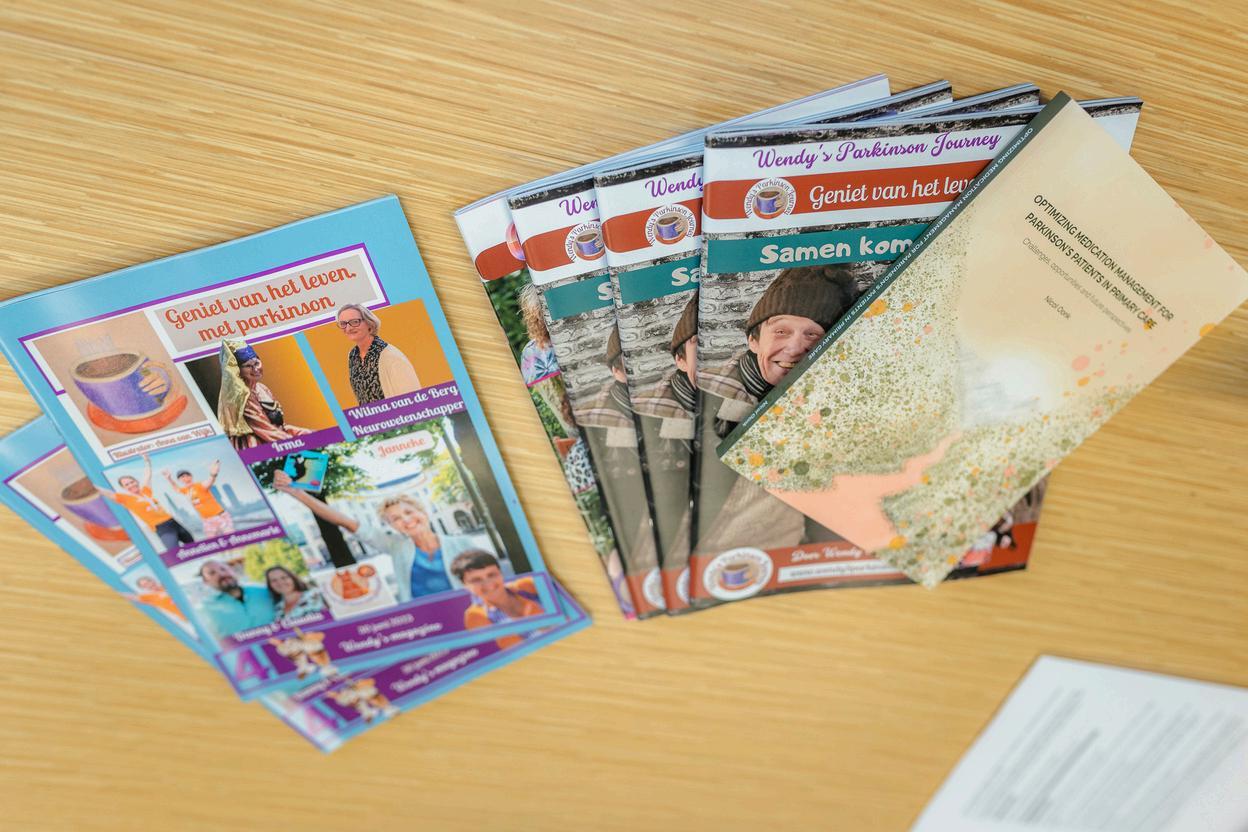
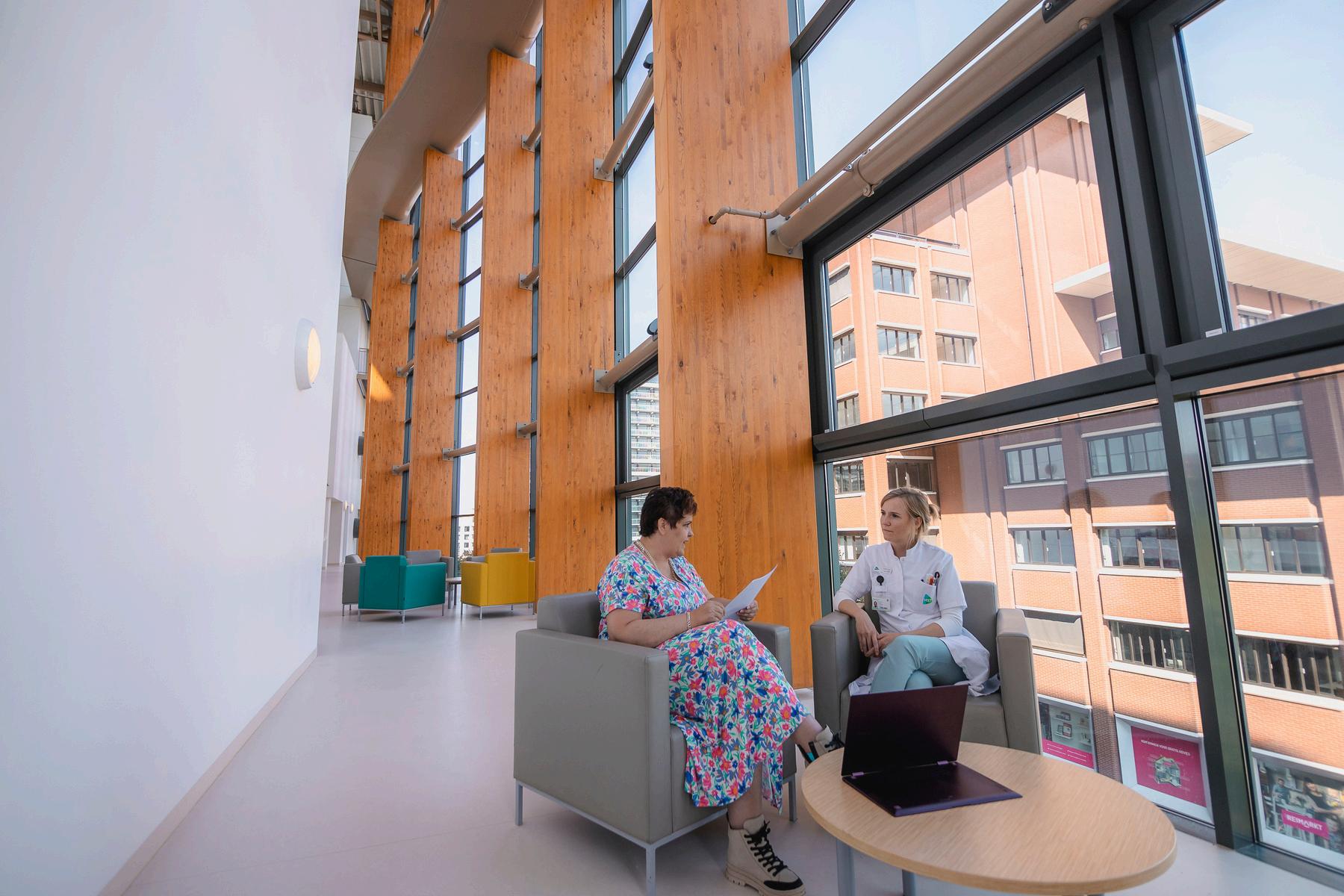


The added value of the pharmacist in the treatment of Parkinson's.
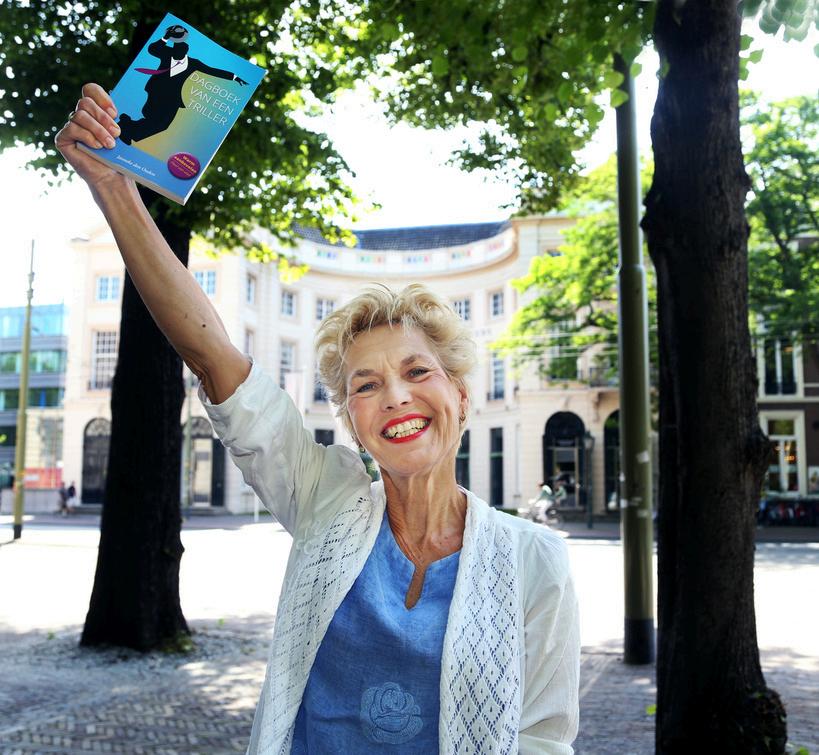
Janneke den Ouden (author of Diary of a thriller) has had Parkinson's for years. In Wendy's Parkinson Journey you will always find a blog of hers.
“But I really don't see anything wrong with you.”

As a parakeet, I feel confined in a body that makes it increasingly challenging to do what once seemed so ordinary. The hurdles I'm facing are becoming more daunting, and I often find myself questioning the phrase, "I really don't see anything wrong with you." This sentiment is sometimes followed by, "If I didn’t know you had Parkinson's, I would never notice."
At times, I appreciate that I appear completely normal and can blend in with those who don’t have to navigate constant obstacles to accomplish simple tasks. However, just as often, I feel quite isolated because of it. It feels like I’m acting, fully aware that I'm pretending to be stronger than I truly am, knowing that soon I’ll be unsteady again, trembling, walking awkwardly, and experiencing stiffness with painful muscles and nerves.
It frustrates me when people recognize that something is amiss. I dislike those looks because I don’t want to stand out. There are increasing moments when I feel so unwell that I no longer care about others' opinions.
I completely understand that those who see me during a good moment can't fathom that it can all change in an instant, as if by simply clapping three times and turning around, I could be transformed into a statue or a wobbly clown. Mister P. is just an eccentric character, delivering unexpected and sometimes unpleasant surprises.

“But I really don't see anything wrong with you.”
Sometimes I can run up and down the stairs really f bounce along to the music. Then I stand in front of t mirror and show myself how much fun I can move.
Half an hour later I shuffle past, stiff and bent over purposely don't look in the mirror. Mr. P. must be gr

In our village there is a supermarket where a small woman terrorizes the whole place and snarls and growls at the customers. The whole village knows this but she always gets away with it. I get really nervous and try to prepare the circus of paying. Bag ready and open (otherwise the zipper suddenly gets stuck again or folds in half). Wallet in my hand with my card and my phone already opened on the right app for scanning. Still, it often goes wrong. The day before yesterday I had the audacity to ask the woman if the scanning had worked. “You can see that on the screen!” The groceries are pushed aside furiously and a frown appears on her forehead indicating that I should have put them in my bag a long time ago.
This morning I had had enough. I was looking forward to an argument that would undoubtedly end in my favor. On the way to the store I thought about what I was going to say. I prepared a few really brilliant sentences in which I would shut her up in a sharp but humorous way and make the relationship clear. I was really looking forward to it.
The moment was there. I scan the app, grab the groceries and put them in my bag enjoying what is to come. And what does she say…? ”Have a nice day!
Bewildered and a little disappointed, I walk outside. That didn't go as planned. I look back and see the woman already busy with the next customer's groceries. A crooked smile on her lips. She's smart, I have to give her that. She looks up and our eyes meet. I give her a thumbs up. Then we both laugh.
When I arrive at our house, Bart is talking to a couple he knows from a tennis match. I join them and introduce myself politely. Bart says he told me about my Parkinson's. After a polite talk babbeltje the woman looks at me thoughtfully and says: 'I didn't see it right away but now that I look clo see something strange about you.' And what do I say? 'Th clever of you because most people don't see anything abo

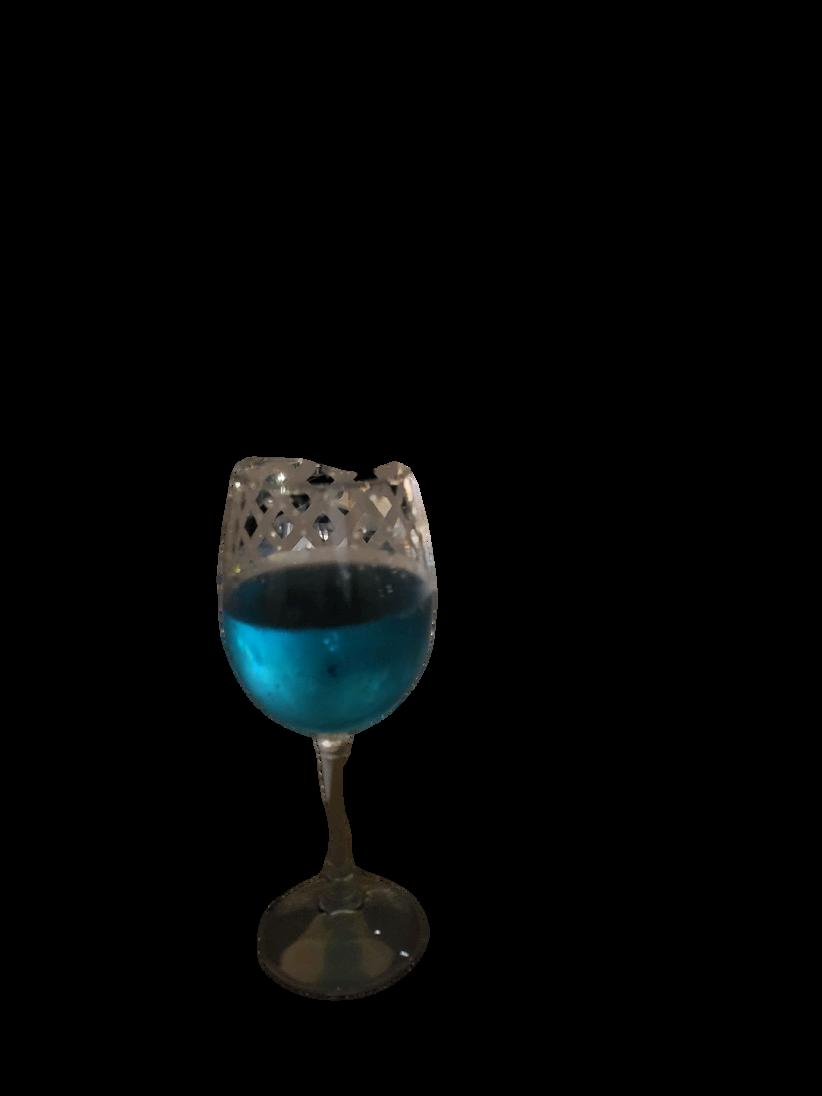



Click here, for the English information of the charity boxing event on October 20, 2024.
Participate in this boxing challenge from the convenience of your own location, no matter where you are in the world! For more information in English, click here! All proceeds from this event will support ParkinsonFonds.


Join us for a live boxing event on Zoom and secure sponsorship! All proceeds will be donated to ParkinsonFonds.
On October 20th, PBX Netherlands will celebrate its anniversary at Only Friends, featuring a Parkinson's boxing challenge. This challenge involves ten combinations, each lasting one minute, interspersed with brief breaks. You can participate via Zoom from all over the globe, and we'll ensure you can join live. Gather your friends and celebrate this occasion from the comfort of your own space!
For ten years, coaches and boxers have passionately dedicated themselves to enhancing the lives of individuals with Parkinson's disease. Now it's time for a significant charity event! PBX Nederland is partnering with ParkinsonFonds and Only Friends in Amsterdam to raise funds for essential research on Parkinson's.

A Day of Connection and Community
Join us in celebration! Everyone connected to Parkinson's disease is invited—whether you are a boxer, coach, caregiver, family member, or friend. Join us at Only Friends in Amsterdam on October 20th for a day filled with connection, strength, and inspiration. Help us commemorate the anniversary of Parkinson Boxing Nederland and raise awareness in the fight against Parkinson's disease. Please register here.
We have a diverse and inspiring program planned:
Walk-in/Reception: 9:30 - 10:00 AM
Opening Speech: 10:30 AM
Lecture by Erik Scherder: 10:45 AM
Boxing Workout and National Challenge: Starting at 2:00 PM CEST. The complete schedule will soon be available at www.parkinsonboxing.nl.
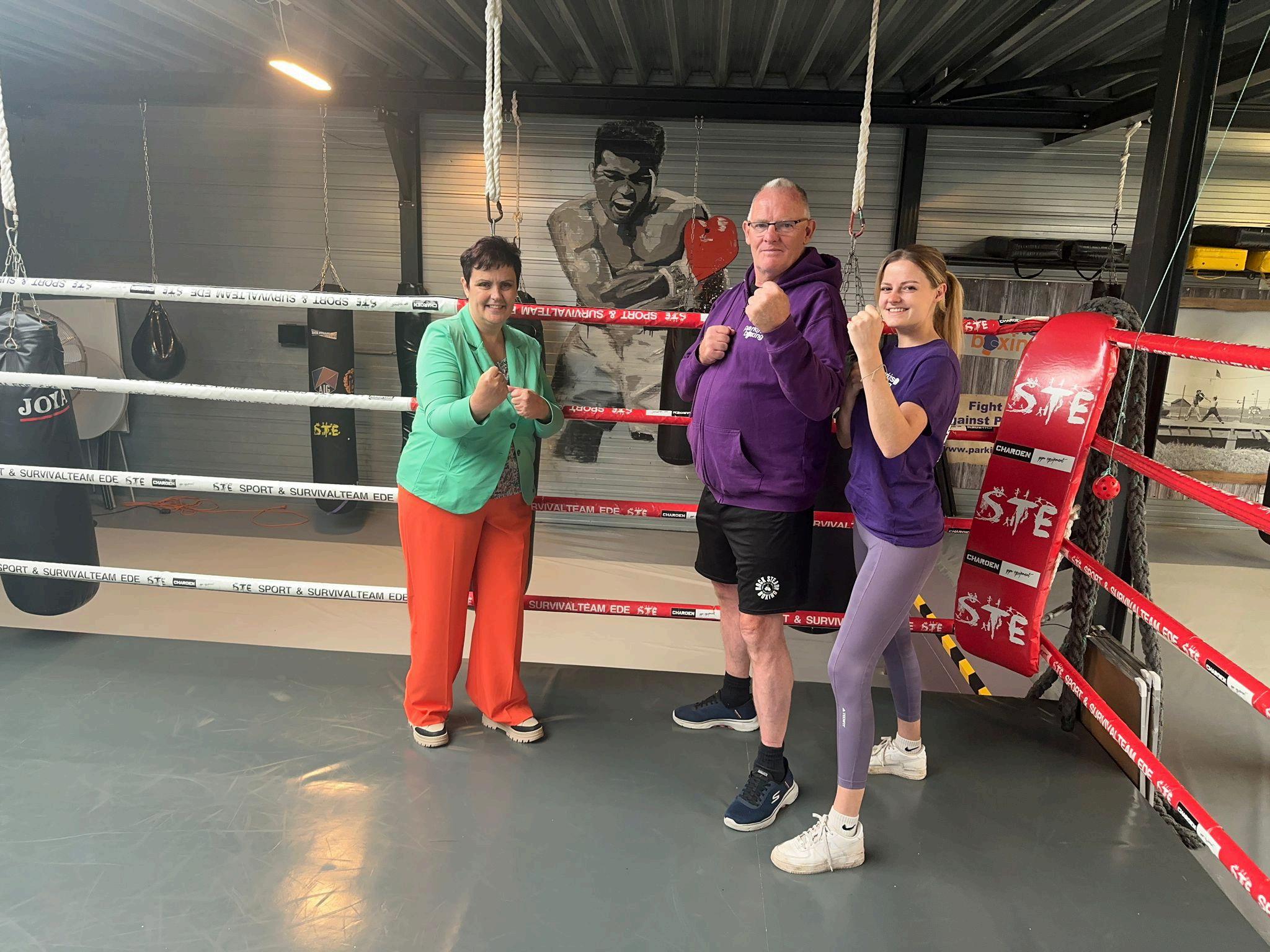
Let’s unite to eliminate Parkinson's disease from our lives. Research is crucial, forming the basis for discovering effective treatments. Today, we are coming together to address Parkinson's from all angles around the world. Join us, raise your voice, and contribute to funding ongoing research!
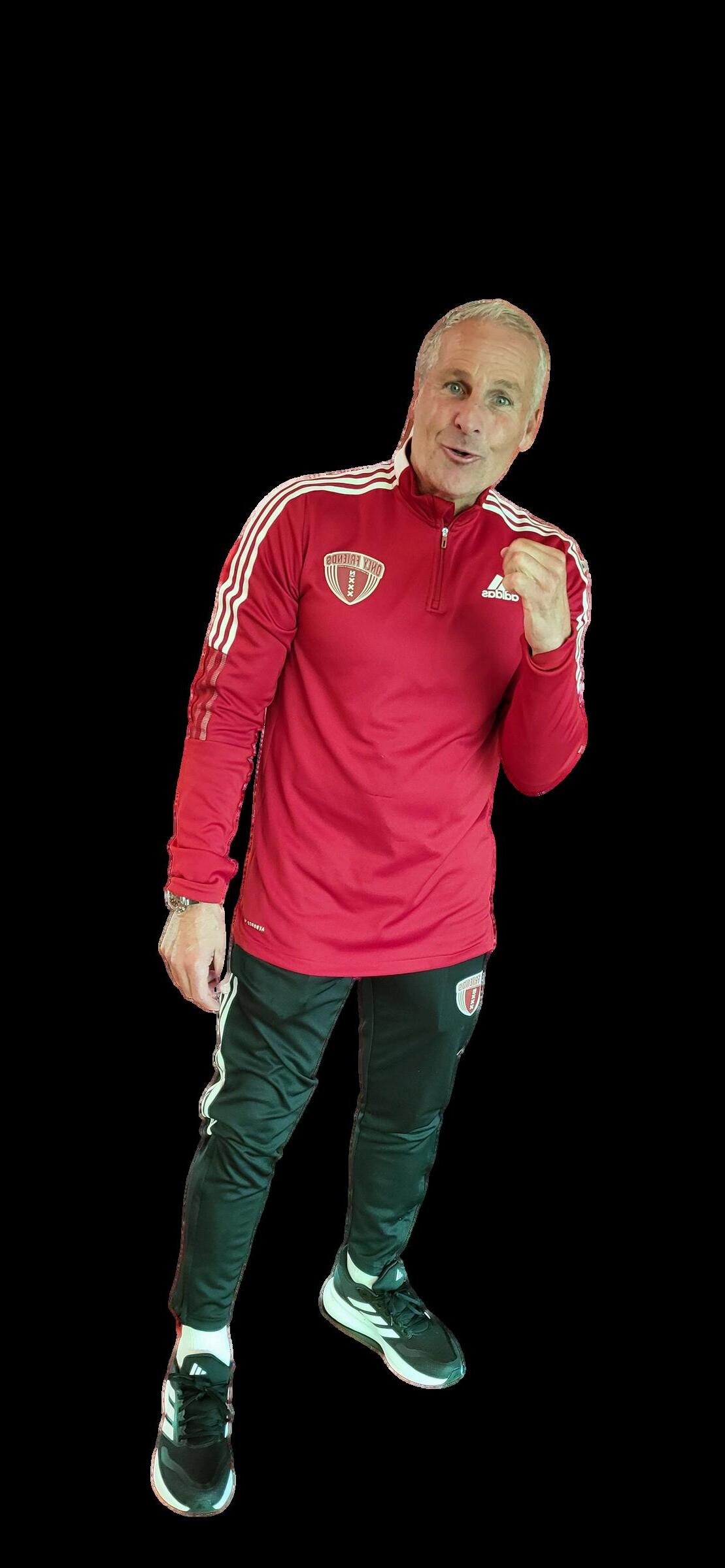
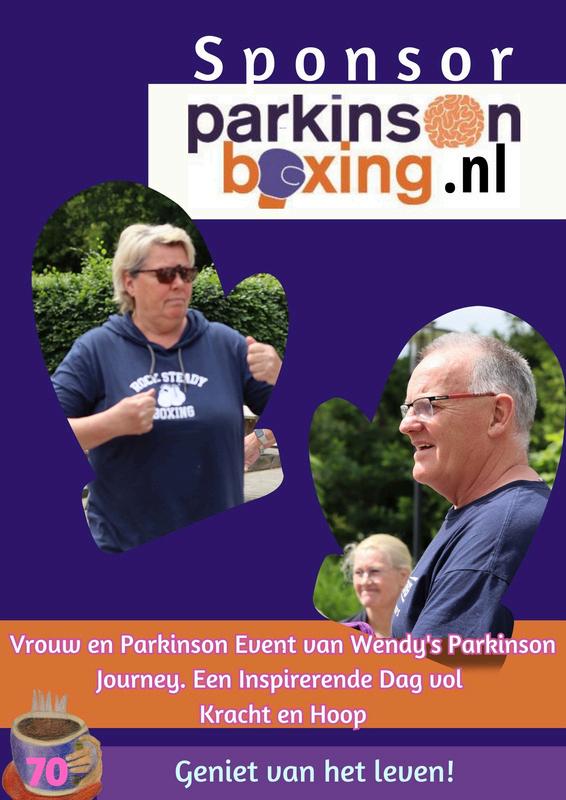

Dennis Gebbink Esther Bussi
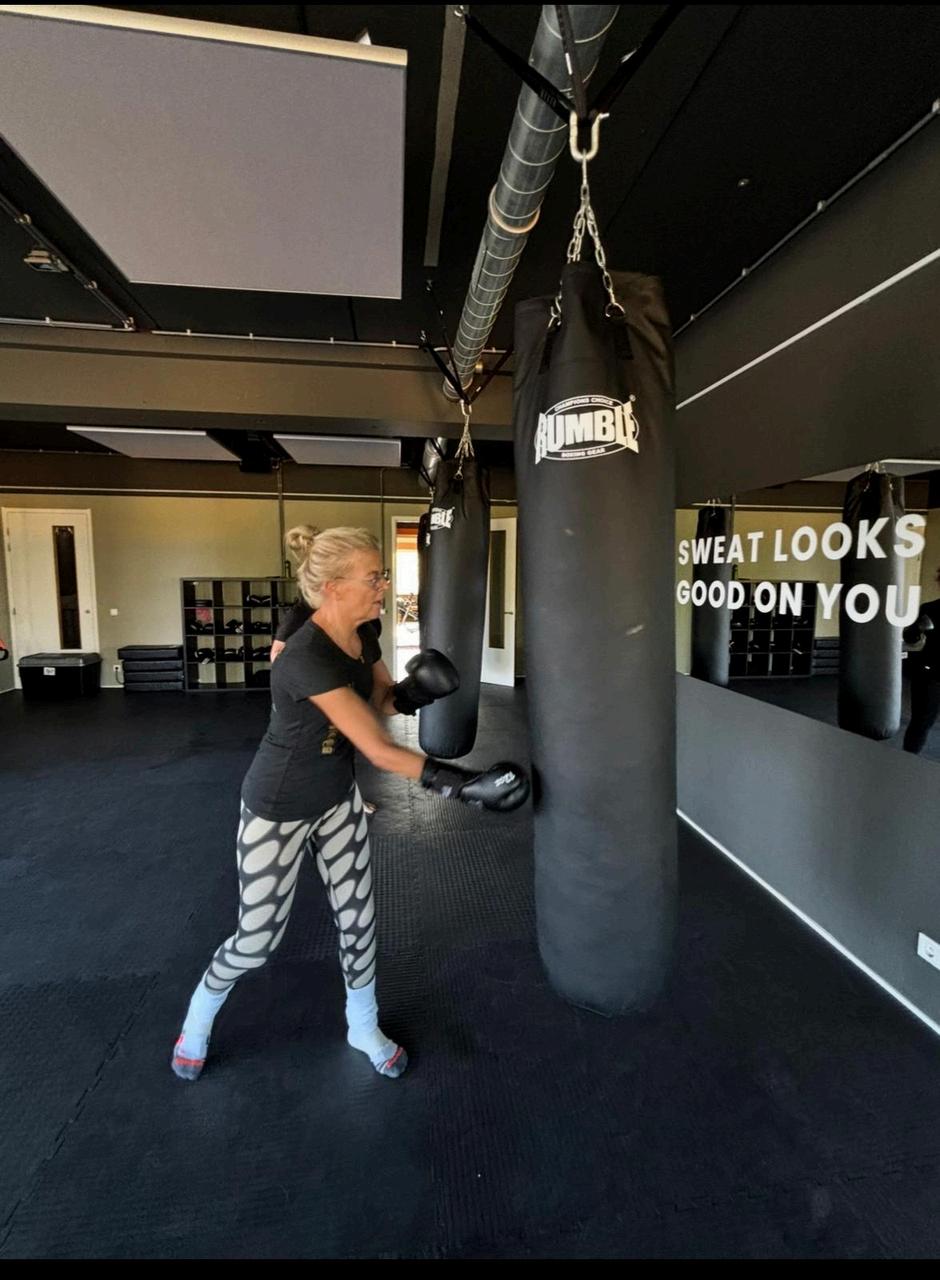

Hans Louwerse from Parkinson Boxing Nederland emphasizes the significance of this event: "It serves as a chance to demonstrate the resilience of this community while raising awareness about Parkinson's disease and the advantages of boxing."

Everyone from around the world is invited to
participate!
Esther Bussink: “Check out the amazing work Dennis is doing! He’s also going to provide boxing lessons for those with Parkinson's.”
Esther is backing Dennis Gebbink in highlighting Parkinson's boxing at Only Friends. As someone with firsthand experience, she shares her story, adding significant weight to the cause. Esther is actively involved in organizing the Parkinson Boxing Charity event in partnership with Parkinson Boxing and the ParkinsonFonds. "I find it truly wonderful to be a part of this. It energizes me, and it’s fantastic to collaborate with everyone to create such a meaningful event."
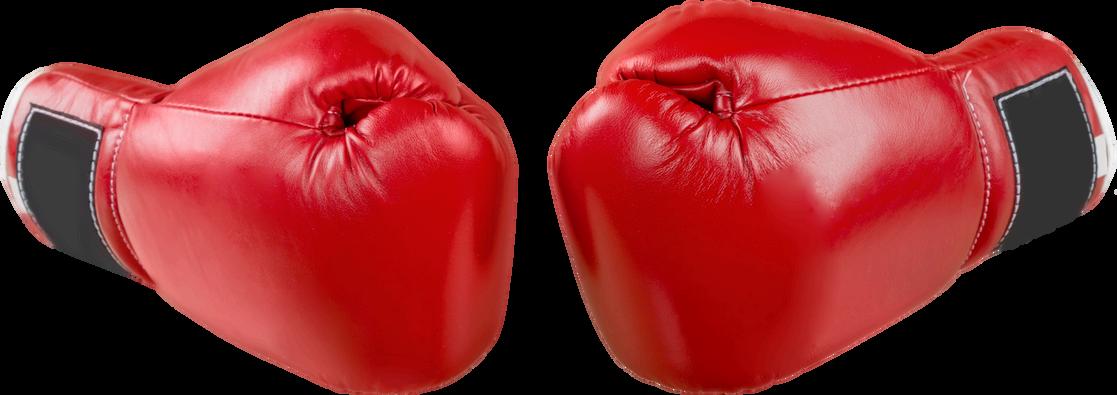

Together we fight back against


Dennis Gebbink:

We are thrilled to announce a fantastic event taking place on October 20th at Only Friends in Amsterdam, made possible by the dedicated efforts of Parkinson Boxing Netherlands: Hans, Dini and Anna Louwerse.
This day is set to be extraordinary, featuring a lecture by the esteemed neuroscientist Erik Scherder, along with a unique family boxing training session led by Hans.
We hope to see you there! Be sure to mark October 20th in your calendar –it promises to be a memorable day!

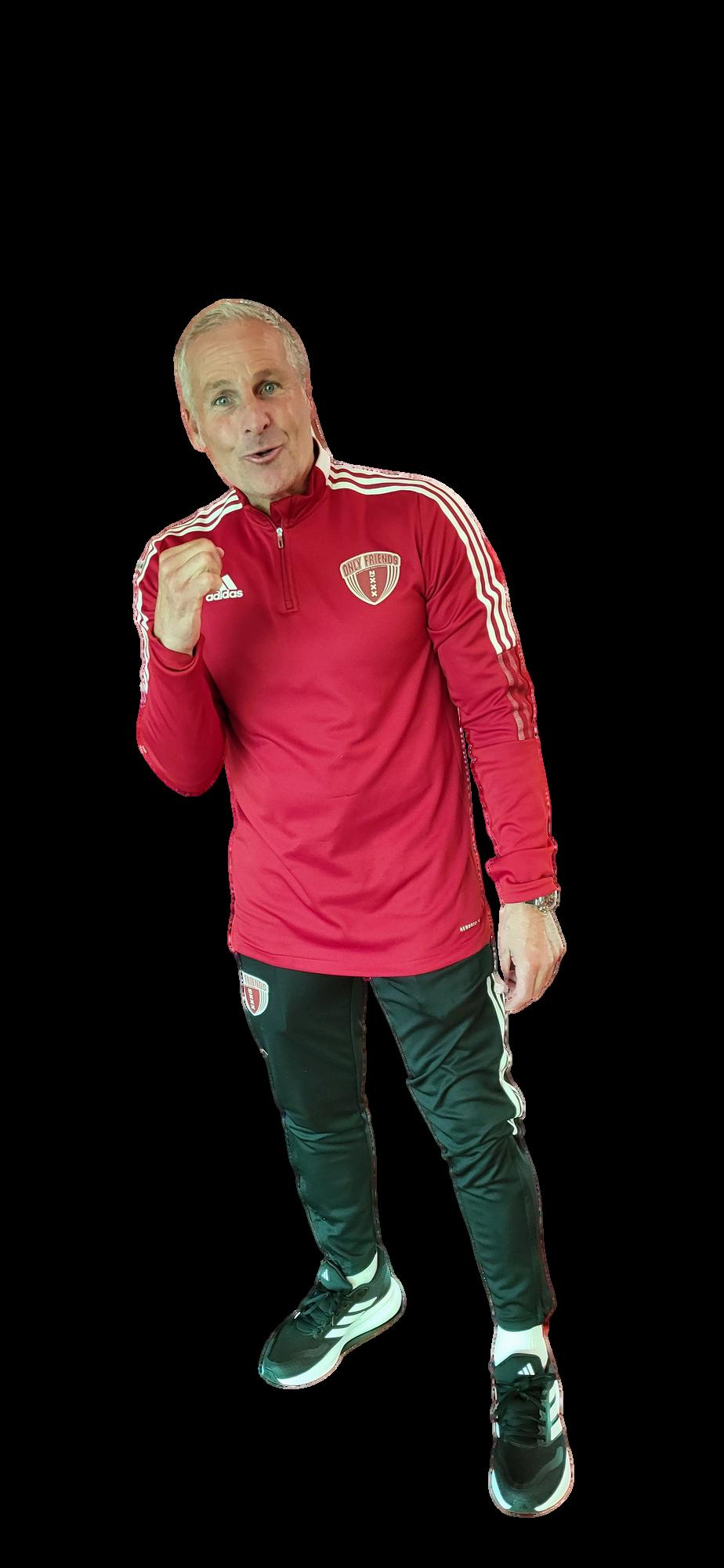

Marlies: "Our journey started with a simple concept: Fists Against Parkinson's. This national initiative seeks to motivate as many boxers as possible to obtain sponsorship for a boxing challenge aimed at combating Parkinson's. By participating in this event, both boxers and sponsors play a vital role in advancing the understanding of its cause. We are immensely grateful for the enthusiasm shown by PBX Ede in incorporating this challenge into their tenth-anniversary celebration. It's truly heartwarming that Only Friends in Amsterdam is also kindly hosting this event. We wish all the boxers, both in Amsterdam and those joining us from around the globe via ZOOM, great enjoyment and success in the challenge and their fundraising endeavors!"


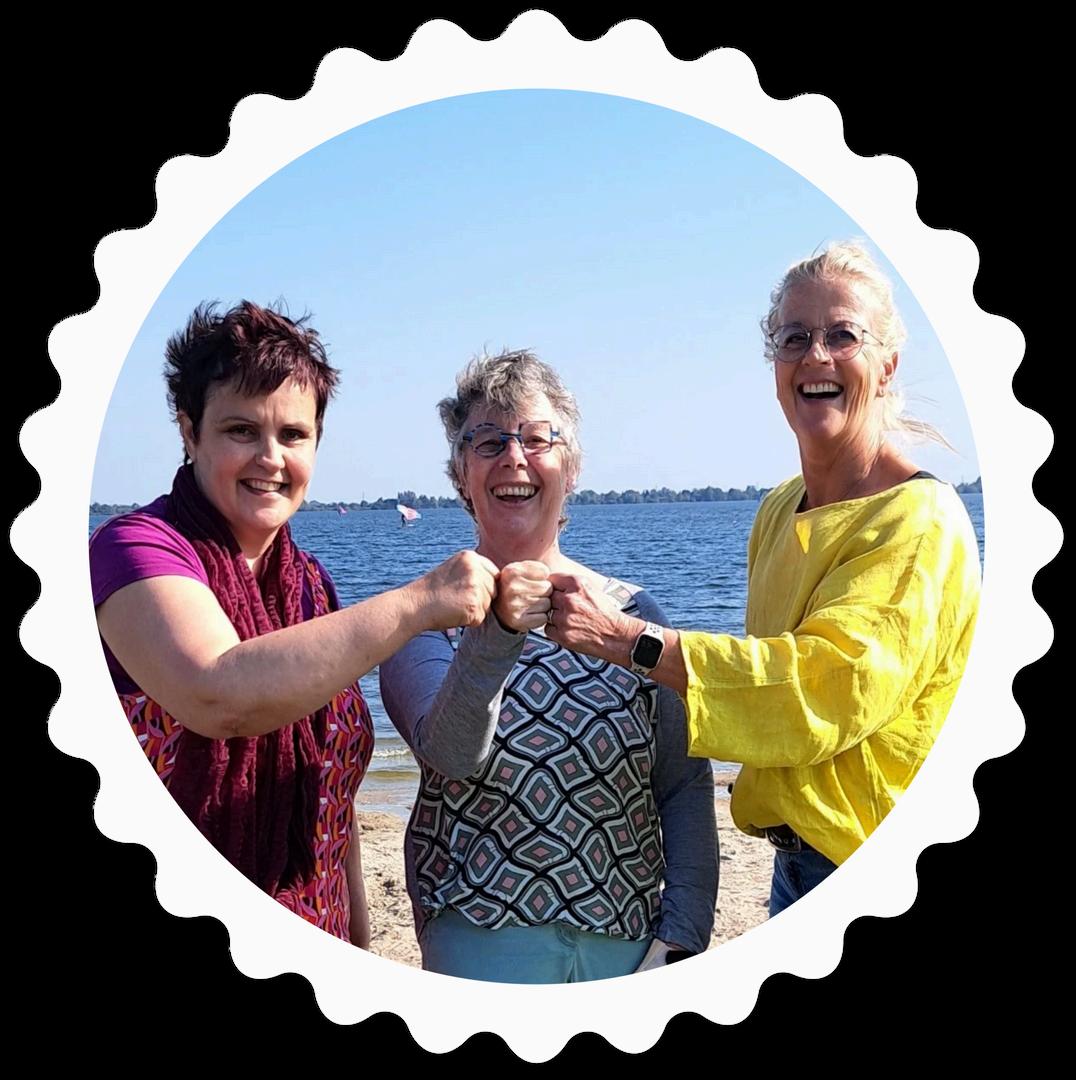

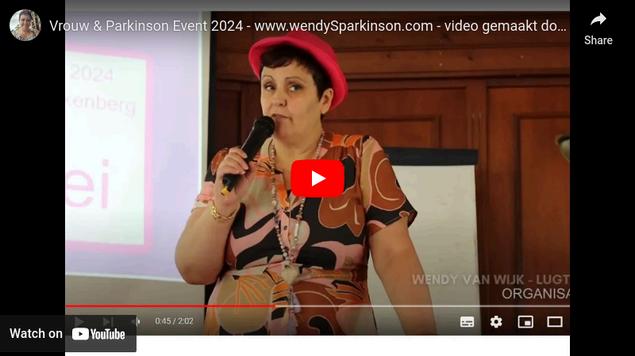



I am thrilled to share that we will be hosting another Women & Parkinson Event in the spring of 2025. The organizing team recently gathered to discuss the overwhelmingly positive feedback from the previous event. Comments like "it was fantastic," "a valuable day," "I enjoyed it immensely," and "thank you for creating beautiful memories" have truly touched our hearts. I am so grateful for the initiative I took in 2023, which has had such a meaningful impact on women.
Recreation park De Dikkenberg is also excited and eager to welcome us back.
Alongside the women's organization team, we are brainstorming ways to make this event even more remarkable. Our aim is to create something completely different that encourages ample opportunities for connection, something everyone will look forward to. Of course, we will include enjoyable activities to ensure a wonderful experience.
Join Wendy's Parkinson Journey for FREE to be the first to receive the invitation and secure your chance to sign up.
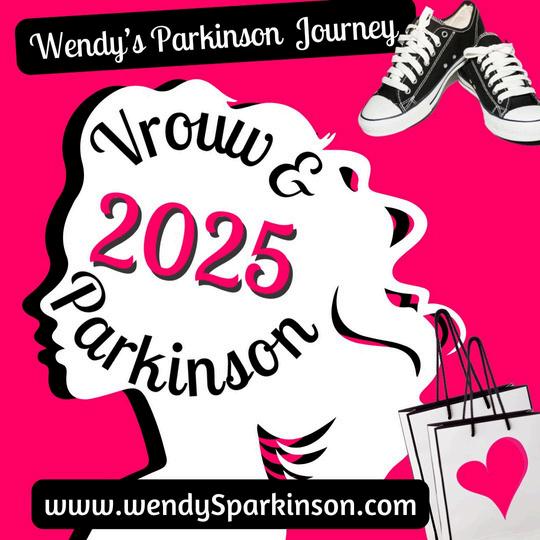
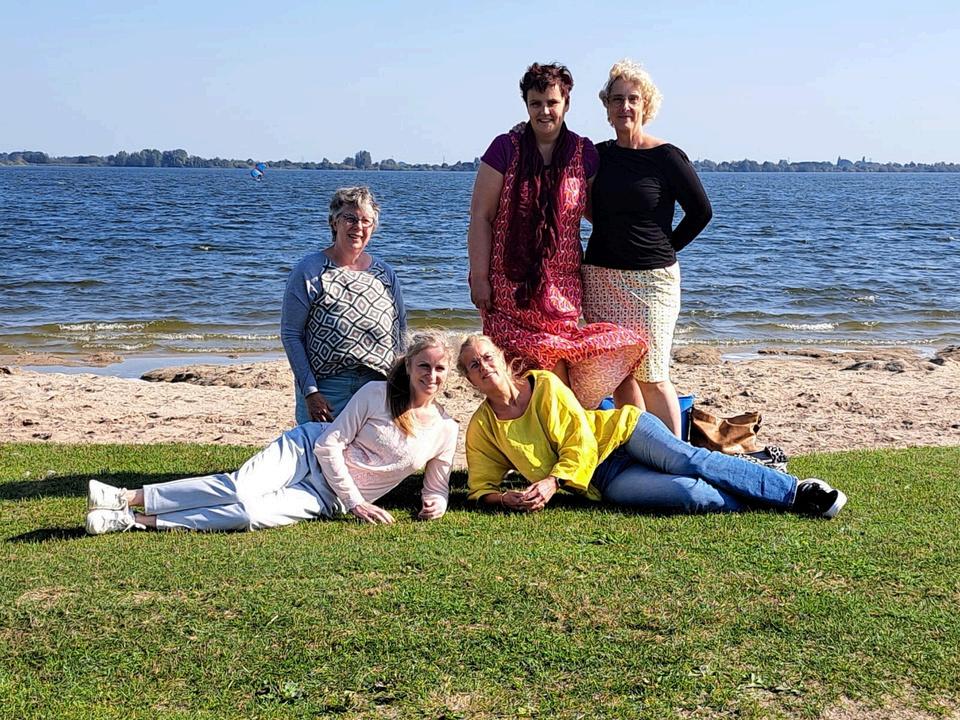
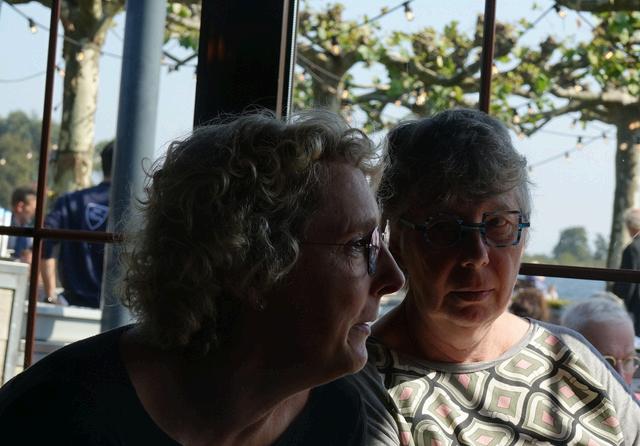

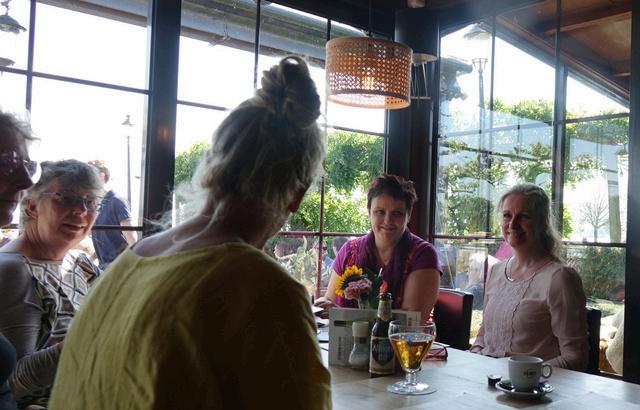
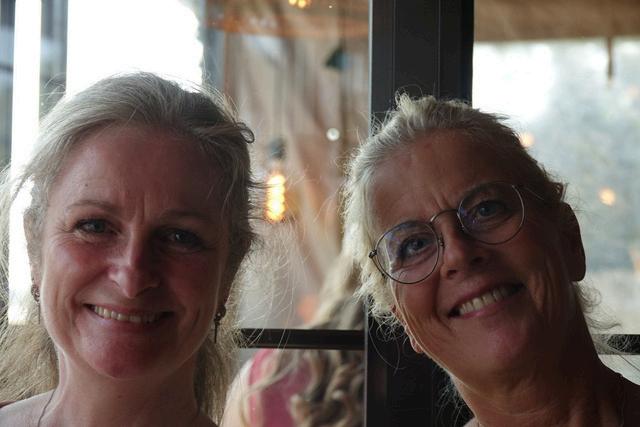

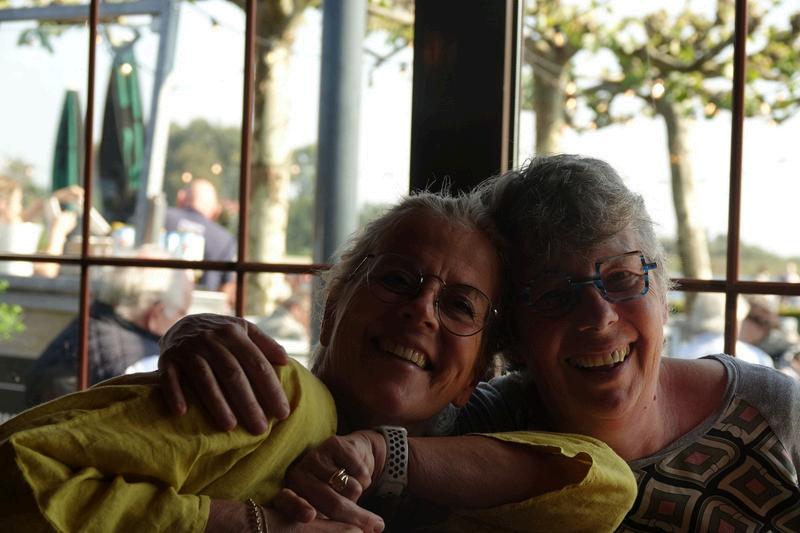

This painting shows Esther's aunt's shirt. See page 35.
In a beautiful conversation with Esther Bussink, an energetic and creative woman, she openly shares her life story and how she, despite her Parkinson's diagnosis, lives her life positively and with resilience. She talks about the impact of her diagnosis, her passion for art, her involvement in volunteer work and sports, and how she has found herself again despite everything.
“Good morning, Esther.” “Good morning, Wendy. This is only the second time we’ve seen each other in person. We’ve seen each other online many times, but now it’s extra nice to meet in person again!”
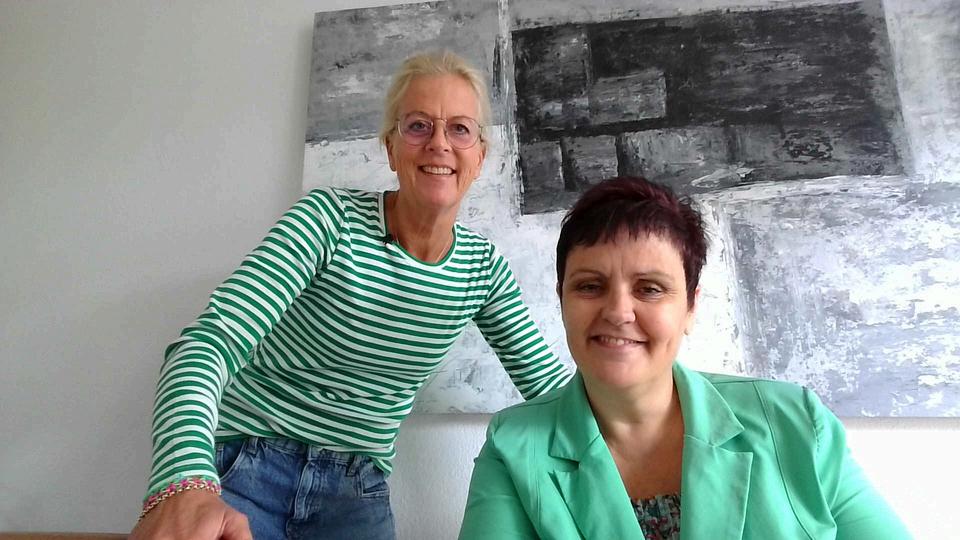
Esther: “I also thought about becoming a vlogger, but there are already so many of them, I'm no longer unique in that.”

Our conversation begins with these warm words. Esther (58), who has lived in Veenendaal with her husband Frank since 1997, radiates positivity. Growing up in Boskoop, a small town in the Groene Hart, she remembers her youth and her family: her parents (now 83 and 84) and 2 brothers, 1 in Gouda and 1 in Ruurlo. She laughs when she tells us that we are going to have lunch in Reeuwijk, near her birthplace, not knowing that I myself grew up in that neighborhood. Esther lived for years on the Gouwe near the Hefbrug.
As a young adult, Esther chose a career in fashion and clothing. She studied fashion in Alphen aan den Rijn and soon began working in the vibrant world of clothing and design. Her career took her to various places, from Amsterdam to other major cities. She started her career as a saleswoman in the showroom of the Fashion House in Amsterdam. She managed to secure this position by going to the clothing center for a day of interviewing with all her papers and diplomas, immediately after finishing her education, and was offered the job at the end of the day. After that, thanks to a friend, she worked as a sales representative for the children's collection at O'Neill. This job led to Speedo approaching her for a job as a sales representative for swimwear, where she worked for 23 years. The fashion world, with its hectic pace and ever-changing trends, was the perfect environment for someone with her energy and determination, but in 2015 her life changed dramatically when she was declared unfit for work due to eye problems. Always tired and not knowing what was wrong. Not knowing that the path of Parkinson's was next to it and she only found out later.
After years of unexplained symptoms such as coordination problems, Esther was diagnosed with Parkinson's disease. She tells how she started noticing subtle signs in 2011/2012, such as reduced strength and having to think about simple actions. She just had to think about it: how do I sit down or stand up again. Her diagnosis finally came in 2019, and although the disease initially surprised her, she quickly found ways to cope with it.
The neurologist told her: “You have Parkinson’s.” Esther: “Oh, and now, I’m going to die from that?” “No, you’re not going to die from that. You’re going to die someday, but not from this.” That was taken as the title of the documentary last year.
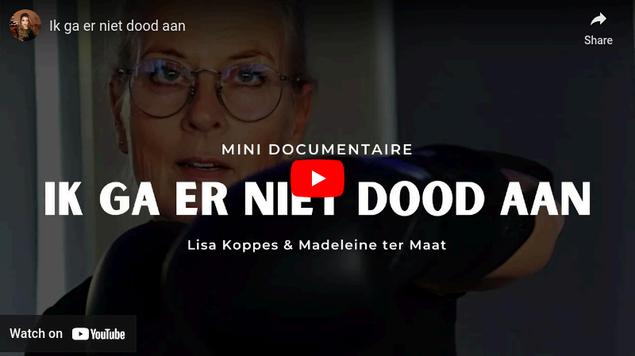
Afterreceivingmedication,sherediscoveredherformerenergy."Ifeltlike theoldEstheragain,"sheremarkswithasmile.Initially,shehadfew connectionswithintheParkinson'scommunity,butattendinganevent changedeverything,andshesuddenlyfoundherselfinthreeWhatsApp groups.It'swonderfultobuildthatcamaraderiewhenmeetingothersat events.
AsignificantaspectofEsther’slifepost-diagnosisishercreativeoutlet. Shehastakenuppaintinganddrawing,whichprovideherwithimmense peaceandfulfillment.Shedescribeshowshecancompletelyimmerse herselfinherart,muchlikeonedoesduringyoga.Paintingallowsherto releaseherthoughtsandmomentarilyforgetaboutherbody,whichcan oftenfeelstiffandfatigued.Overtheyears,Estherhascreatedseveral paintings,someofwhichsheconsiders“notperfect,”yettheyholdvalue forthatveryreason.“Inthosemoments,Ifindcompletetranquilityand wrapmyselfinmyownspace.Justlikewithsports,youcantrulylose yourselfinit.WhenIpaint,Iforgetaboutmyillnessforawhile,”Esther shares.



created a painting
Art served as a powerful outlet for her to channel her frustrations and sadness into something beautiful and significant. Not only has her art enriched her own life, but it has also touched the lives of others. She has received commissions to create artwork for a beach club in southern Spain. Her paintings, which beautifully capture the essence of life, hold immense value for her. They provide her with a chance to momentarily escape her illness and simply be Esther. This experience is incredibly precious to her, and she gains so much in return.
In the images above, you can see the initial paintings created by Esther. Each piece was crafted individually by her, drawing inspiration from the world around her. "It's amazing to witness my creativity evolve," Esther shares. "I find ideas everywhere and transform them into something new." The painting featured in the photo on the first page of this interview showcases a transparent shirt made from multiple layers, allowing a glimpse through it. This shirt belonged to her aunt, who passed away in 1964 at the age of 19, and Esther has cherished it ever since.
Additionally, Esther was gifted a book by her grandmother, dating back to 1821. This heirloom has been passed down through the family and is now in Esther's possession, courtesy of her grandmother. Wendy, the author of this article, comments, "I hesitate to touch it, but I can admire it." Esther replies, "You can certainly hold it; I do as well."
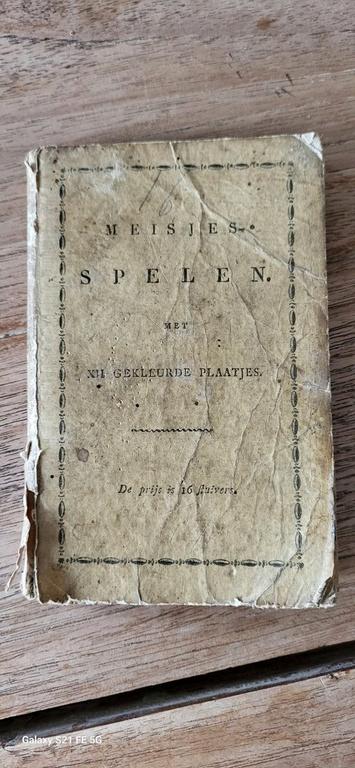
“This book is dedicated to Esther Ferweda. The book dates back to 1821 and is entirely in old Dutch. I haven’t managed to read it from cover to cover yet.”
“I used to press leaves or create paintings. Yet, for some reason, I never felt that I was good enough.”
Alongside her artistic pursuits, sports play a significant role in Esther's life. She engages in Parkinson’s boxing, yoga, spinning, and occasionally goes for a run. “Exercise keeps me energized,” she shares. During a vacation in southern Spain, she realized the crucial role regular exercise plays in her well-being. “When Frank mentioned I was becoming less active, I understood the profound effect exercise has on my health.”
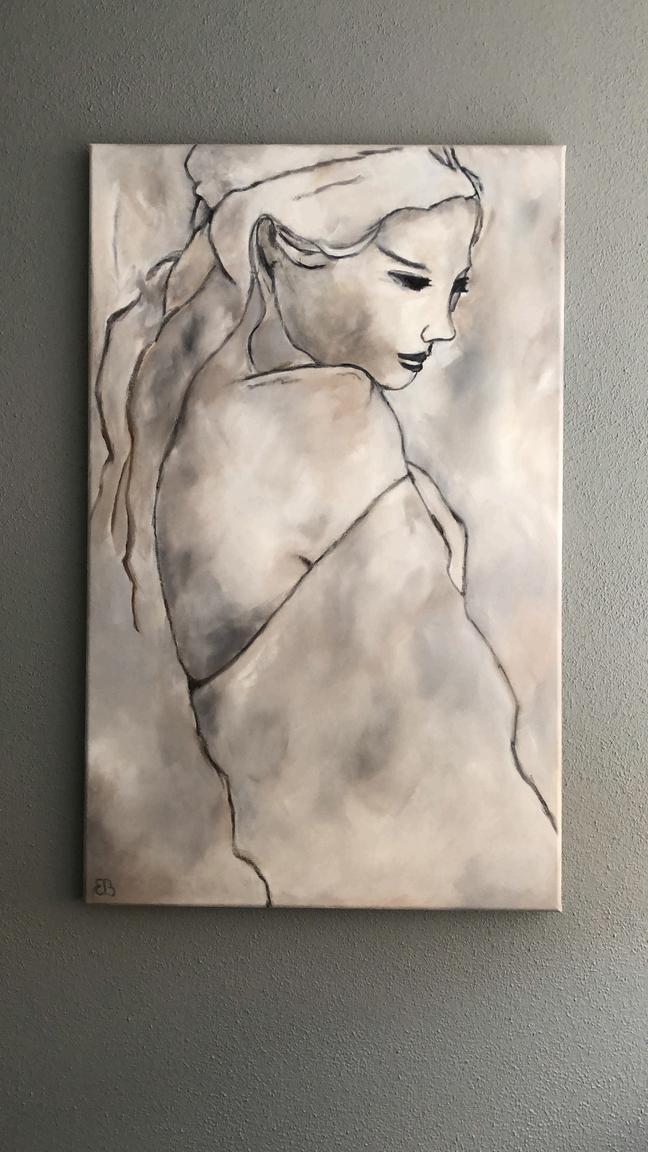
Nutrition also contributes to her daily equilibrium. While Esther treats herself to a cookie from time to time, she believes that healthy food enhances her well-being. "Maintaining balance in everything I do is essential; that's when I perform at my best."

She observes that this variety has a beneficial impact on her well-being: “When I include a mix of different activities in my schedule, I feel great. There isn't a day when I can't fit in some exercise—there's always space in my agenda for it. This provides me with structure and helps me maintain balance. I also enjoy reading a book occasionally, going for a walk, or simply appreciating the nature around me. I pay attention to what I hear, see, and smell.”
“I connected with you through the app group ‘Beste beentje voor.’ That’s where we first communicated and discussed the gym event, which you also interviewed me about. When I noticed the upcoming Woman and Parkinson event, it clicked for me: Hey Wendy, I want to help! Together, we gathered eight remarkable individuals with Parkinson’s, and we succeeded in making the event a hit. I hope we can continue this collaboration for many years. I truly enjoyed that day.”
Esther is also active in volunteer efforts. She has contributed to the environmental organization “GoodFish” and is currently involved with the city museum of Veenendaal, where she conducts tours and shares local history with visitors. Her volunteer work not only provides her with a sense of purpose but also enables her to stay connected with her community and meet new people.
Esther shares, “It allows me to be a part of society, even if I can’t do all the things I used to.”
What makes Esther truly inspiring is her ability to remain positive, even in the face of the challenges that come with Parkinson’s. She is committed to living her life to the fullest, without excessive concern for the future. “I strive to live in the present as much as possible,” she explains. “I know I can’t control everything, but as long as I keep moving, creating, and contributing to my community, I feel content.”
Her message to those facing difficulties is both simple and impactful: "Continue believing in yourself. The world is filled with opportunities, even when everything seems to be falling apart. If you lack faith in yourself, no one else will."
Esther Bussink’s story illustrates that life is brimming with unexpected twists and challenges, yet it is possible to carve out a new path even in the toughest situations. Her journey through art, sports, and volunteering serves as a powerful testament to how we can conquer obstacles with creativity and resilience. Esther embodies the notion that, despite the hurdles posed by Parkinson's, life continues to offer endless possibilities.
What distinguishes Esther is her optimistic and grounded perspective on life. "I try not to stress too much about the future. We focus on living in the present, day by day, and what matters most is that we find joy wherever we can. You can drive yourself to madness with worries, but I choose a different path."
"There is always a reason to stay active. Sports are a staple in my life, and maintaining a balance among strength, fitness, rest, and enjoyment makes me feel good. Embrace the moment and don’t let worries about potential pitfalls dominate your thoughts."
With a vibrant and creative flair, you bring your story to life, drawing attention while generously allowing space for your guests. The layout is expansive, infused with enthusiasm and an incredibly positive atmosphere.

Esther Bussink’s journey illustrates the unexpected twists life can present and highlights the resilience of the human spirit. Her artistic path, passion for sports and volunteering, along with her optimistic perspective, serve as a beacon of hope for those confronting difficulties. Even in the face of her diagnosis, Esther remains a firm believer in the strength of positivity and self-assurance, inspiring countless individuals along the way.
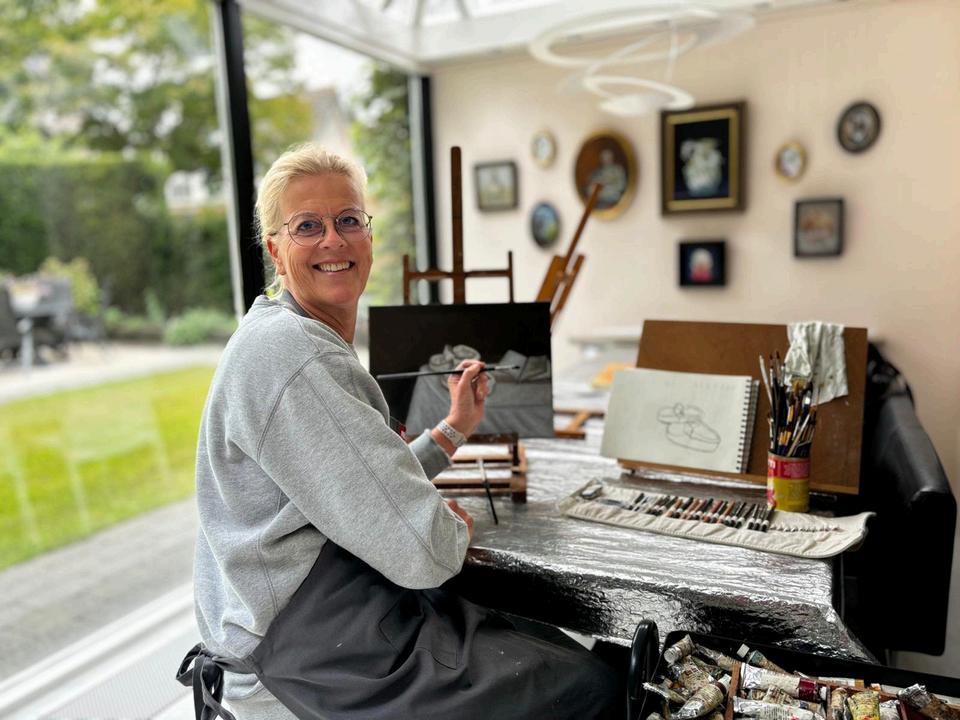

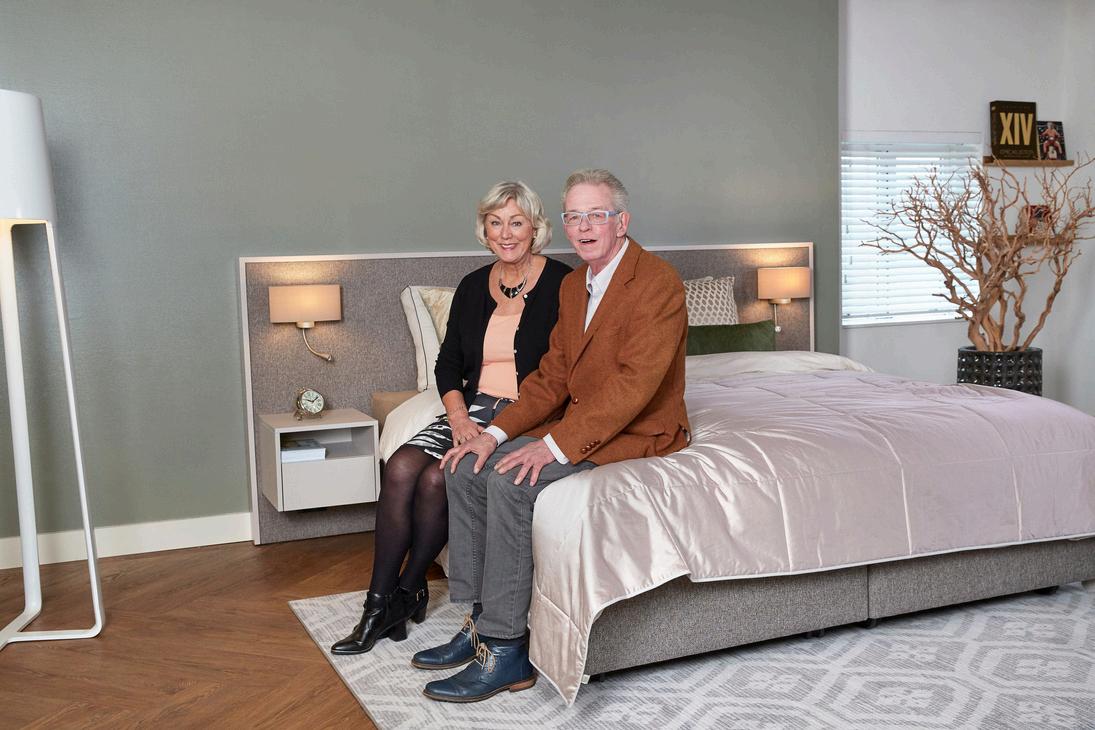

"My husband struggles to get out of bed, and I end up with back pain from helping him."

Robert, who has Parkinson's, struggled with sleeping and getting out of bed by himself This meant that Marja, his partner, had to assist him constantly, and it started to become tough for both of them
On top of that, his illness caused stiffness, pain, and restricted movement, which made their everyday lives more challenging
They chose a high-low bed featuring FPS technology, which makes it easier to get up and boosts blood circulation The bed is completely tailored to Robert's needs FPS technology.
Robert is sleeping better, experiences less pain, and finding it easier to get out of bed. Marja is also using the bed for her own issues, and they’re both really happy with the positive effect it’s had on their everyday lives.

Our beds can come with the cutting-edge Frequency Physio Support (FPS) sound system, designed to enhance blood circulation and encourage deep relaxation with gentle sound waves.
This method works really well for easing tension and pain in situations like Parkinson's


Bjorn regularly writes a blog on Instagram under the name ‘Mokje- en Mopper’. I liked this one so much which fits perfectly with my platform Inspire Each Other Positively.
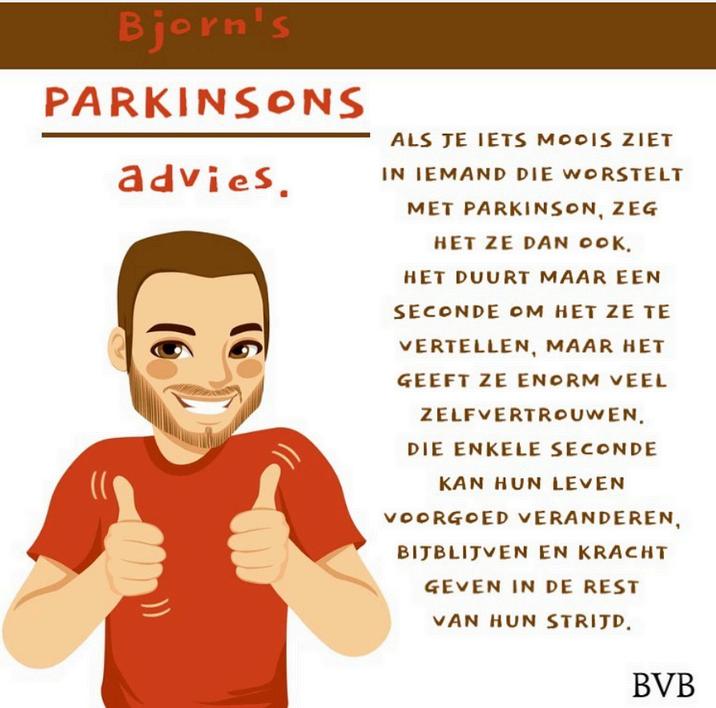
If you see something beautiful in someone who is struggling with parkinsons, tell them, it only takes a second to tell them, but it gives them so much confidence, that single second can change their life forever, stay with them and give them strength for the rest of their struggle.
Often, it is the negative results and visible shortcomings that dominate discussions about Parkinson's and parkinsonism, attracting criticism.
Why is it so difficult to safeguard and concentrate on the positive aspects?

Individuals diagnosed with Parkinson's have so much to contribute and excel in various areas, making it surprising that there isn't more focus on this aspect. A simple compliment can provide immense strength and energy, significantly impacting the ongoing struggle between mind and body for those living with the condition.
Hearing words of affirmation about doing something well brings joy, and that happiness boosts dopamine production—a hormone that enhances our overall well-being.
Taking just a few seconds to share something positive costs nothing but offers great rewards. While the negative challenges we face daily are all too familiar, we often overlook the acknowledgment of our successes.
A gentle reminder of our capabilities adds tremendous value. We may recognize what is no longer achievable, but without encouragement, we can gradually forget what we can still accomplish.
Living with loss is challenging, yet knowing that others can uplift us with simple, kind words provides hope. It can shift the balance between despair and resilience, or between negative and positive thoughts, enabling us to find the strength to persevere.
Words hold incredible power; when used to uplift rather than demean, they enhance our character and beauty. Every person diagnosed with Parkinson's or parkinsonism can draw strength from this support.
Receiving affirmation about our accomplishments instills a sense of aliveness and dignity, reminding us that we still matter. Telling someone they are doing a great job is a beautiful act that should never be overlooked, as it is essential to hear that we are doing something right amidst the many difficulties we face in life.
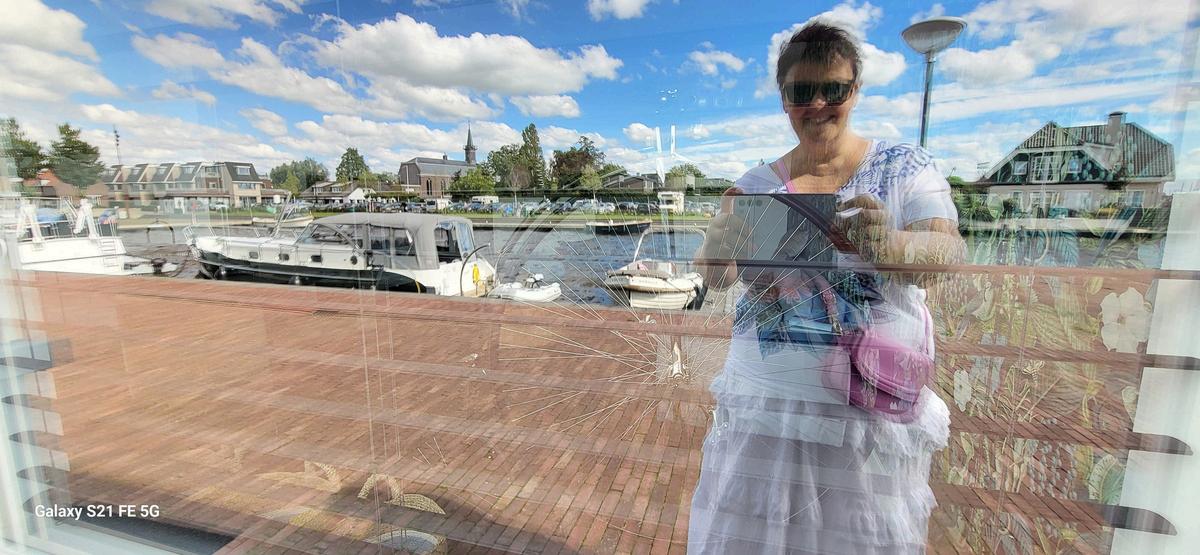


are good for a walk!



by Els Haring
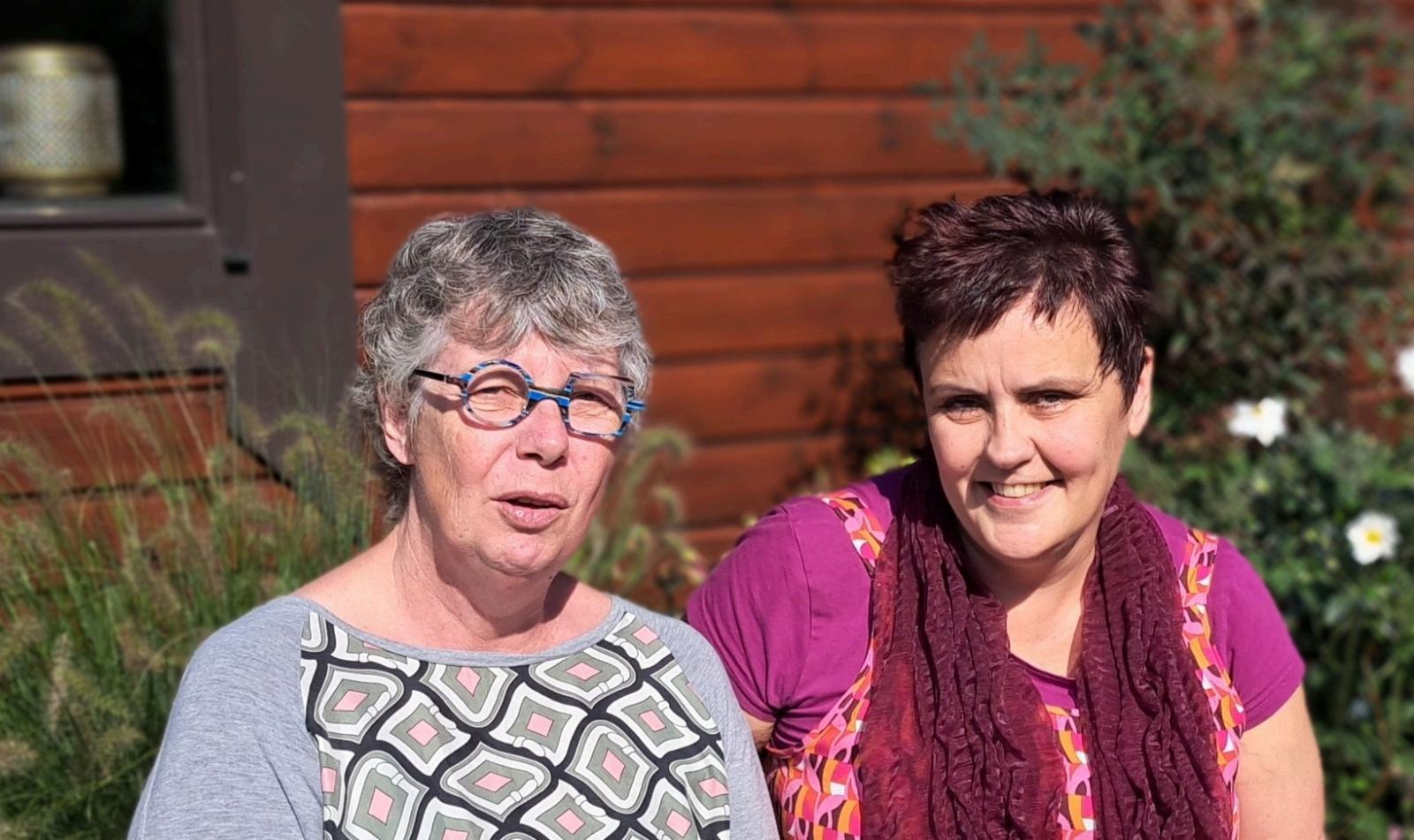
Shortly after receiving Shortly after receiving my Parkinson's my Parkinson's diagnosis five years diagnosis five years ago, I became involved ago, I became involved in several research in several research studies. Most of these studies. Most of these took place at Radboud took place at Radboud UMC in Nijmegen, a UMC in Nijmegen, a place where I truly place where I truly feel at home. We feel at home. We usually book a hotel usually book a hotel there and enjoy there and enjoy visiting friends who visiting friends who reside in Nijmegen or reside in Nijmegen or nearby areas. nearby areas.
These comprehensive studies can offer me valuable insights into my situation, helping us either improve our quality of life in the near future or utilize the available tools to potentially slow down or halt the progression of the disease.
I will provide detailed updates on the ongoing studies I participated in the upcoming magazine, including a discussion on the "Propark" study. Additionally, various Parkinson's research projects are being conducted at the CHDR in Leiden. This medical scientific research is particularly intense, as participants typically stay for several days to assess their reactions to medications that are not yet available in the Netherlands.
I have carefully considered whether to take part in this research, weighing its usefulness against the potential burdens it may impose, and whether I would benefit from it. After thoughtful deliberation, I have chosen to register and am currently awaiting the important phone call.
Furthermore, I am involved in various studies that require me to fill out questionnaires or participate in interviews. This allows me to contribute to the field of research.
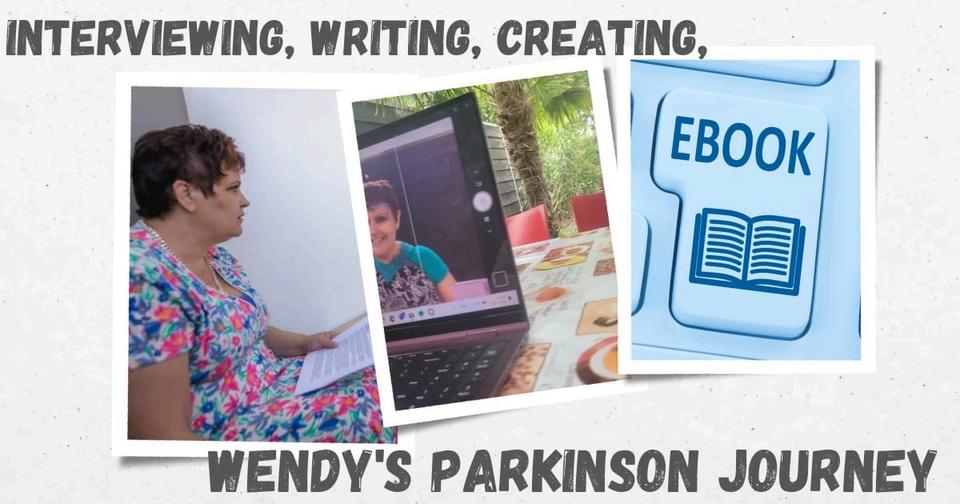

This isn't just a poetry contest; it's a competition aimed at ending the battle against Parkinson's disease. Your poem contributes to vital research, making your words truly impactful. By writing, you can encourage your community to donate. Can you raise at least 100 euros to present your poem to the jury? Welcome to Poetry for Parkinson's! Sign up, compose your poem, seek donations, and vie for a spot in the jury's evaluation, with a chance to feature on the closing night, November 15, 2024. How can you participate? Find out more on our website!
also have apoem?

And raise money for research at the same time!

Check out my poem through the provided link, and any donation would be greatly appreciated. My goal is to raise €100 so that I can attend the closing night once more and connect with the poets. This would allow me to promptly write an article about the experience for my upcoming magazine issue.
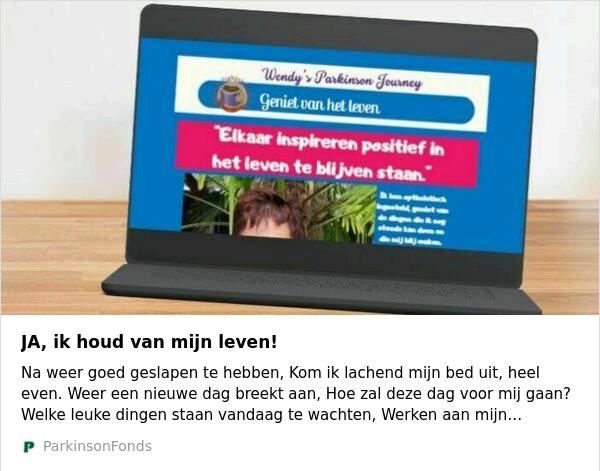

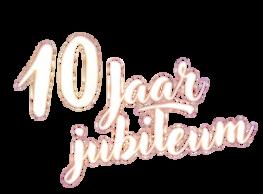
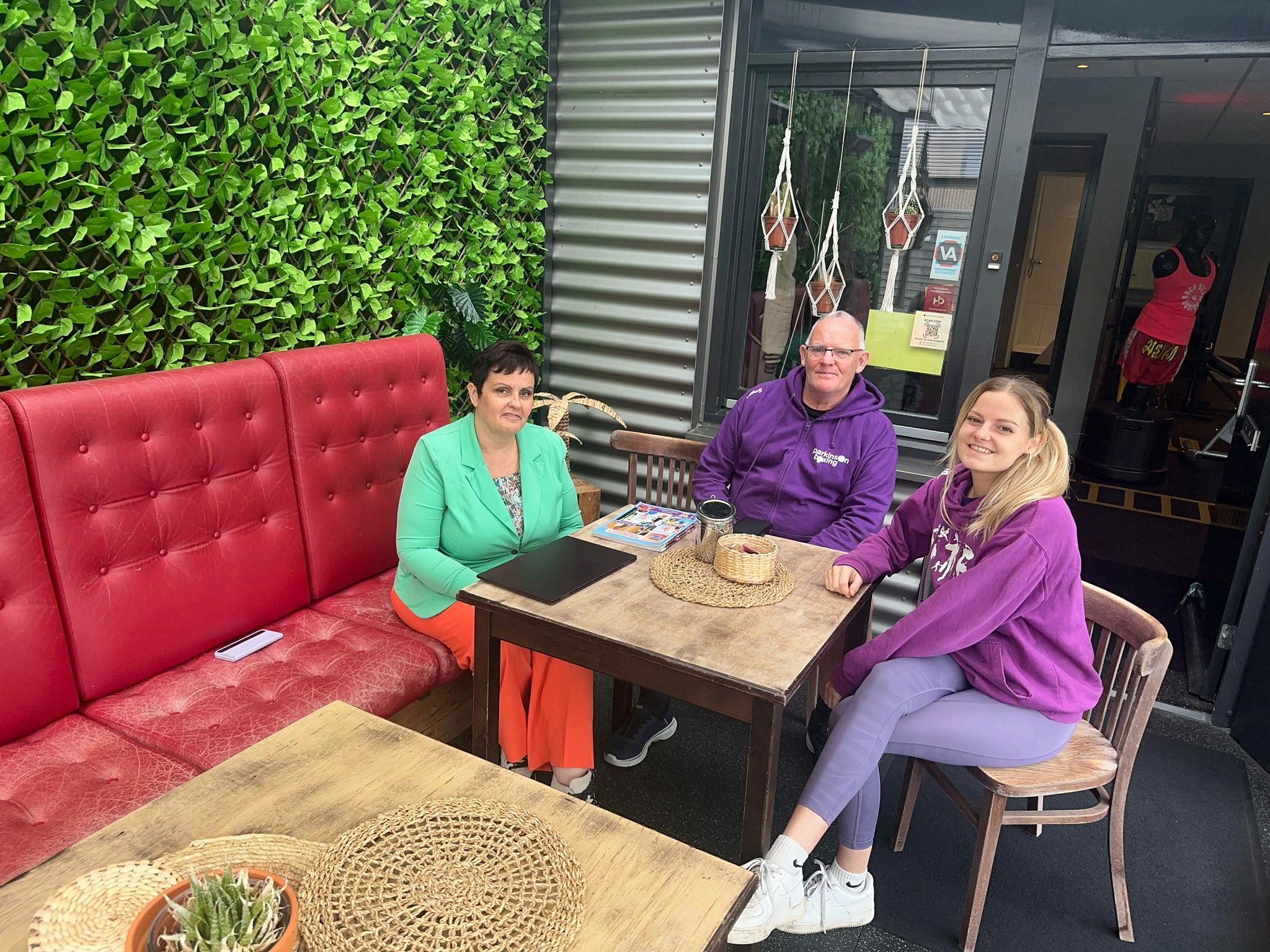
ParkinsonBoxingNederland celebrates10thanniversarywith majorcharityeventin

What began as a humble initiative has transformed into a national movement that empowers countless individuals with Parkinson's to enhance their physical, mental, and social well-being. To commemorate this milestone, Parkinson Boxing Nederland is hosting a significant charity event at the Only Friends sports center in Amsterdam. This occasion not only celebrates ten years of progress but also honors the determination, strength, and unity within the Parkinson's community .
On this special day, you can participate in a boxing challenge involving as many Parkinson's boxers as possible. The challenge includes ten boxing combinations, each lasting one minute, interspersed with brief rest periods. This record symbolizes the resilience of individuals with Parkinson's and aims to raise awareness about the condition. For those unable to attend in person, the event will also be streamed live, emphasizing the inclusive spirit of Parkinson Boxing Nederland, which is committed to providing accessibility for everyone affected by the disease.
Over the past decade, Parkinson's Boxing has emerged as one of the most innovative and effective methods for supporting individuals with Parkinson's disease. The program blends physical exercise with cognitive tasks, stimulating both body and mind. Boxing training enhances balance, coordination, strength, and speed, while also positively impacting participants' cognitive functions.
Hans Louwerse, the founder of Parkinson Boxing Nederland, shares: "Boxing is more than just a physical sport. It serves as a means to train both body and mind. Individuals with Parkinson's often struggle with coordination and balance, and boxing encourages them to be more mindful of their movements. This not only provides immediate physical benefits but also significantly boosts their selfconfidence and overall quality of life."


Research indicates that boxing is among the most effective exercises for individuals with Parkinson’s disease. A study conducted in the United States, which evaluated 60 different sports, found that boxing excelled in balance, strength, flexibility, and coordination. This highlights boxing as a significant complement to traditional therapies like physical therapy and medication.
A crucial aspect of boxing for Parkinson's patients is the incorporation of dual tasking. This technique not only enhances motor functions but also stimulates the brain, which is vital for those living with Parkinson's. Anna Louwerse, daughter of Hans and co-trainer at Parkinson Boxing Nederland, underscores the significance of this approach: "We often introduce cognitive challenges alongside physical exercises. For instance, participants might recite the alphabet while executing boxing movements, or name themes as they move. These dual tasks keep the brain engaged and strengthen the body-mind connection." Hans adds, "Engaging in dual tasks activates both hemispheres of the brain, enhancing their collaboration, which is essential for individuals with Parkinson's."
In addition to boxing drills and dual tasks, the training incorporates elements from various sports, such as karate and tae bo, to diversify the physical challenges. "We apply all the knowledge we've gained over the past 40 years," Hans explains. "The training is consistently varied, and I develop a new program each week to keep it exciting and challenging for the participants."
Over the last ten years, Parkinson Boxing Nederland has seen remarkable growth. What began with a small group of participants has blossomed into a nationwide program. Currently, there are over 100 boxing schools across the Netherlands trained to offer boxing lessons specifically for individuals with Parkinson's.



Parkinson Boxing Nederland has launched a unique app that enables participants to train at home with the help of videos and training schedules. This app serves as a valuable resource for individuals who may not always be able to attend training sessions in person. Hans explains, "With the app, we aim to make Parkinson Boxing accessible to everyone, no matter their location. This way, participants can maintain their training even if they can't make it to the gym."
One of the most remarkable features of Parkinson's boxing is the strong sense of community it fosters. Participants uplift and inspire one another both during and outside of training. Hans describes the group as a family: "It truly feels like a tight-knit community. We share laughs, support one another, and everyone knows each other. That's what makes working with this group so unique." The social connections play a crucial role in the program's success. Boxing training not only provides physical advantages but also creates an environment where participants feel understood and supported. "The participants cultivate a close-knit community where they uplift and encourage each other," Anna remarks. "This is one of the key reasons people keep returning, even if they had initial hesitations about boxing."
Many participants come to Parkinson's boxing with little to no prior sports experience. Hans points out that especially older individuals have often spent their lives without prioritizing physical activity. "For many, starting boxing can be daunting, but after just a few lessons, they quickly recognize the benefits and become eager to continue," he shares. "They feel more empowered, both physically and mentally, and it’s truly inspiring to witness." Despite nearing retirement, Hans Louwerse is committed to the growth and development of Parkinson Boxing Nederland. He stresses that he has no intention of stopping his teaching: "The participants don’t want me to quit, and honestly, I don’t want that either. It feels like more than just a job; it has become an integral part of my life. The group is like family to me, and I want to continue for as long as possible."

To other trainers: “It’s a great group; but know what you’re getting into, because you won’t lose them and you won’t want to lose them. They just become family!”
For those still hesitant about taking up Parkinson’s boxing, Hans has a simple but powerful message: “Just give it a try. Our training is accessible to everyone, regardless of level or experience. Many participants notice improvements, both physically and mentally, after just a few lessons. This is an opportunity to become stronger, regain your confidence and become part of a supportive group.”

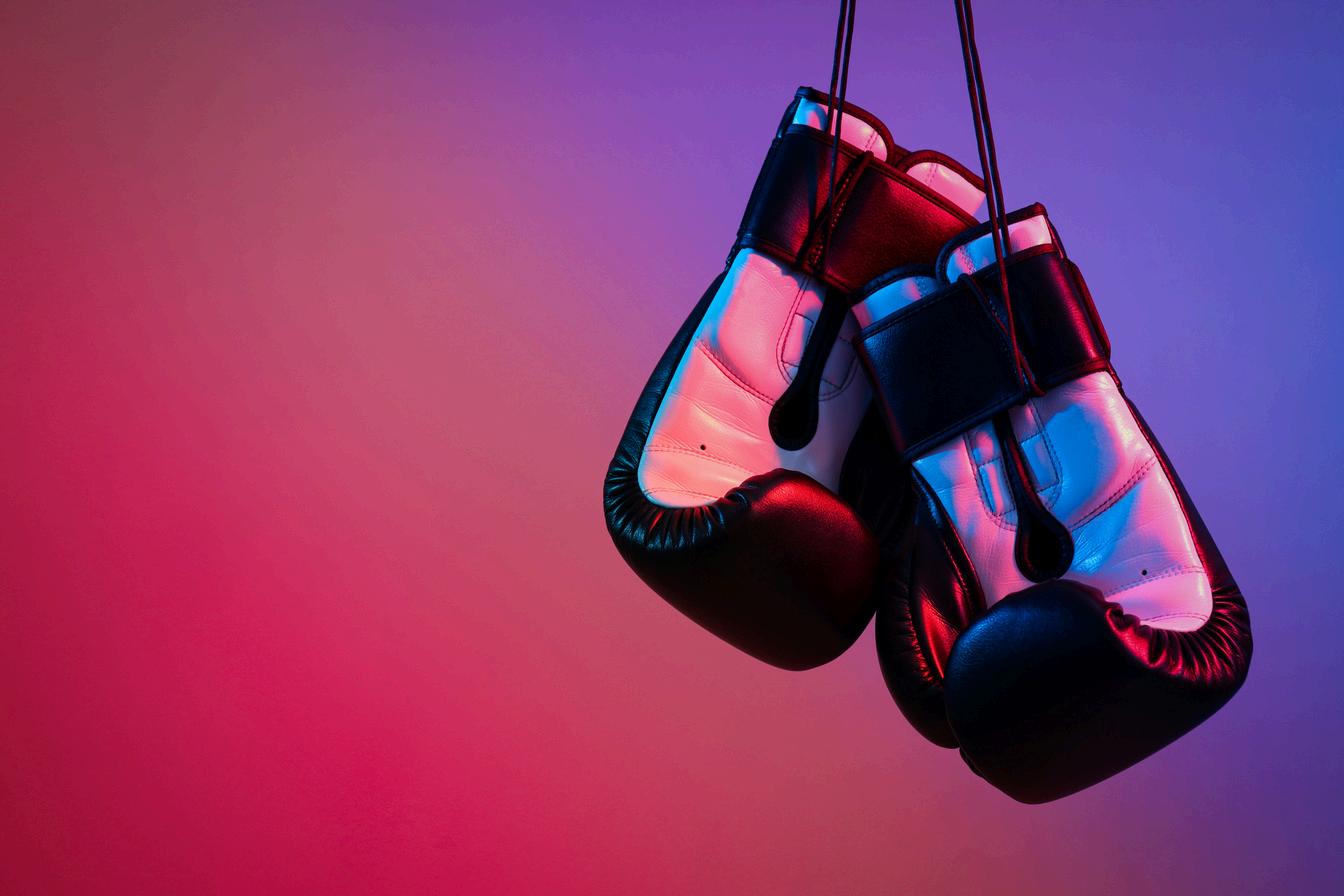


You could hear my laugh from far away, and people would look up. They would often say: "Hey, that's Wendy!" My laugh is recognizable to many and symbolizes how I approach life. I want to do the things that I like and that make me happy.
Even since I was diagnosed with Parkinson's (since May 2017), I continue to enjoy life. I like to go out and meet others. As an interviewer, I meet special people again and again and have interesting conversations. Often, beautiful new contacts or collaborations arise, which gives me a good feeling.
It is important to take good care of yourself, to do the things that give you energy and make you happy. Do you recognize this? My attitude to life really has a positive effect on me. While I often hear people around me that experience stress, need more medication or are exhausted, I wonder why things are going so well for me. I think it is a combination of different aspects: my positivity, my drive, my motivation, my inspiration, my selfconfidence, and simply doing the things that are important to me. Exercise also plays a role; I have decided to walk at least 5 kilometers every day, and that is going well. My leg muscles are getting stronger and I can keep it up for longer and longer. That also makes me feel better.
My motto is: just do it and keep going. You'll see, you'll succeed. My attitude to life keeps bringing new things my way, and I like that. I live, and I am who I am. It's so important to be able to be yourself and dare to be yourself.
Everything I do gives me a purpose in life. When I get up in the morning, I know what I have to do. I get out of bed full of energy and get to work. I work on my magazine, call someone for an interview or to discuss something else, or take the time to come up with new ideas. Once a year I organize an event for women with Parkinson's, which I set up myself. It's great to have created my own work.
Now I also do wonderful things together with ParkinsonFonds. I am very happy to be an ambassador, and after a recent interview with a researcher I want to let a researcher speak in every magazine or pay attention to something else that is supported or created by ParkinsonFonds.
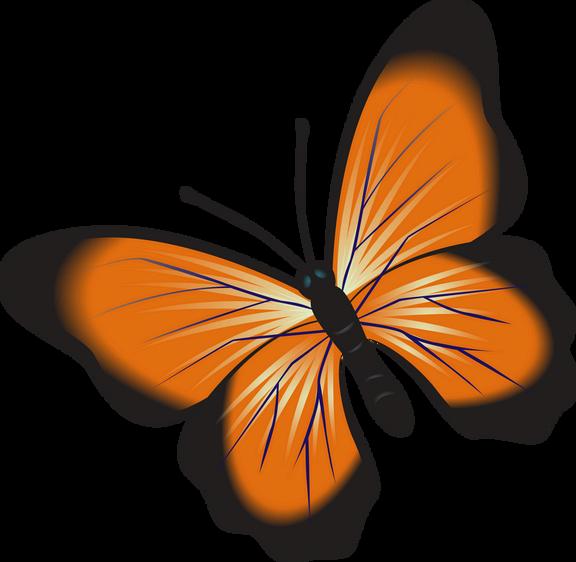
Be happy, laugh and enjoy.
Making beautiful memories, valuable connections that you feel connected to and doing the things that make you happy.


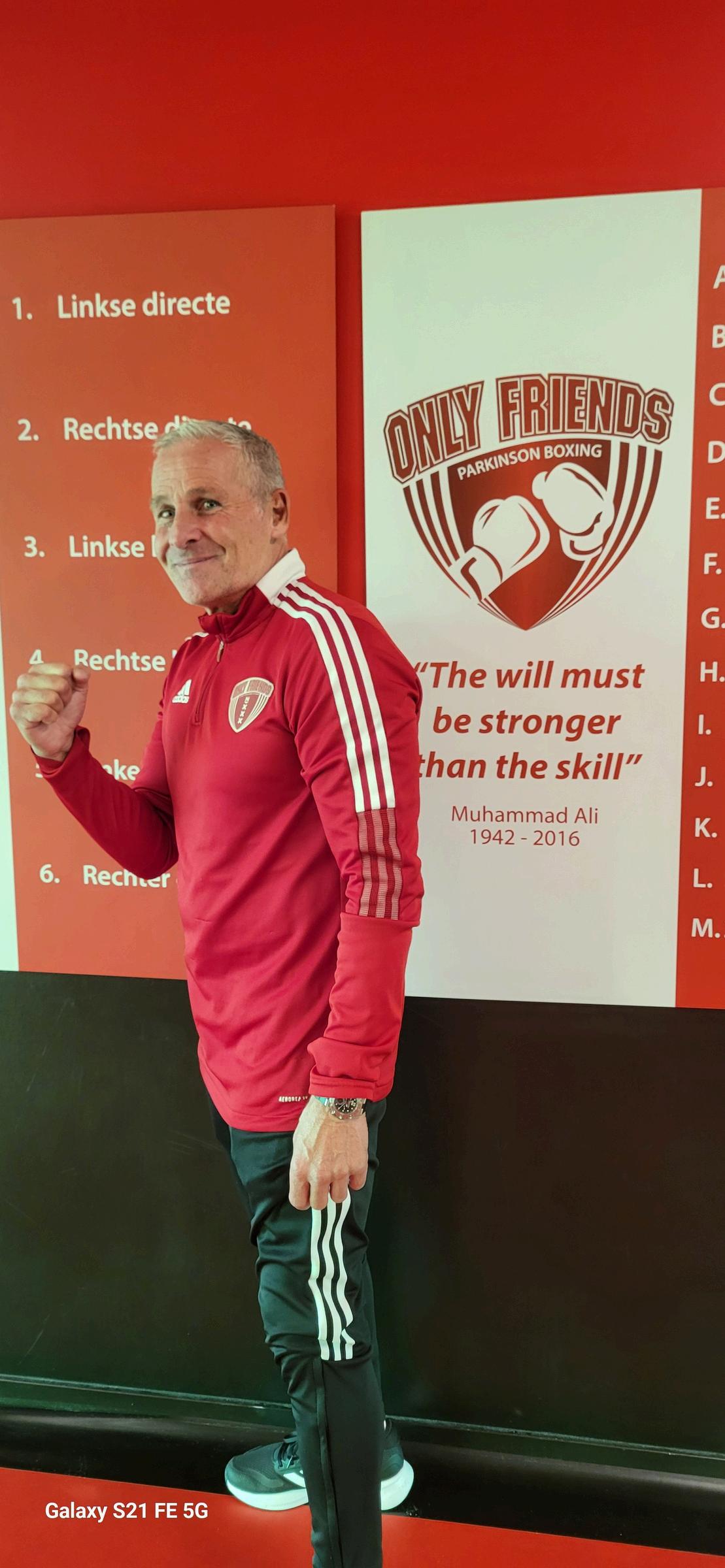
Inspiring Story of Only Friends, where inclusion and sport come together, has recently been enriched with the addition of Parkinson Boxing.
Only Friends, a sports club with a special mission, is celebrating its 25th anniversary in 2025. What started as one man's dream has grown into a movement that changes lives.
"Sports have a huge meaning for me. It's like sleeping; if you don't sleep well, you get grumpy. If I can't do sports, I feel irritable too. Sports plays a crucial role in my life.



Dennis Gebbink always had a strong passion for sports. As a young man, he was a fanatic sportsman himself, with a past in football and kickboxing. Sports were essential to him, an outlet and a source of energy. But his life changed drastically when his son Myron was born. Myron was born prematurely and had a difficult start. After weeks in an incubator and a medical diagnosis indicating bilateral brain damage, it turned out that Myron was dealing with challenges such as spasticity and impaired fine motor skills.
For Dennis and his wife Colinda, this was a turning point. Their lives would never be the same again. Despite Myron’s limitations, sports became a central theme in his upbringing. Myron, like his father, had a strong love for football, but because of his disability he could not participate on an equal footing with other children. This led to frustration, sadness and eventually the realization that there was a lack of sports opportunities for children with disabilities.
“One morning I was woken up by a crying Myron. ‘Dad, I want to stop playing football,’ he said. It felt like a stab in my stomach, and I also had to fight to come to terms with my own grief. But as I grew stronger and let go of the past a bit more, I wrote a letter to the mayor in 1999, in which I expressed my wish to set up a sports club especially for children with disabilities. That wish became reality in February 2000, when Only Friends was founded with just eight children and two footballs.”
What started as a small initiative has grown into a huge organization. Today, Only Friends has 900 members and offers more than 30 different sports, from football and basketball to swimming and judo.

In 2010, Dennis realized another dream with the establishment of the Friendship Sports Centre in Amsterdam-Noord, a facility specifically designed for individuals with disabilities This achievement marked the culmination of years of effort to
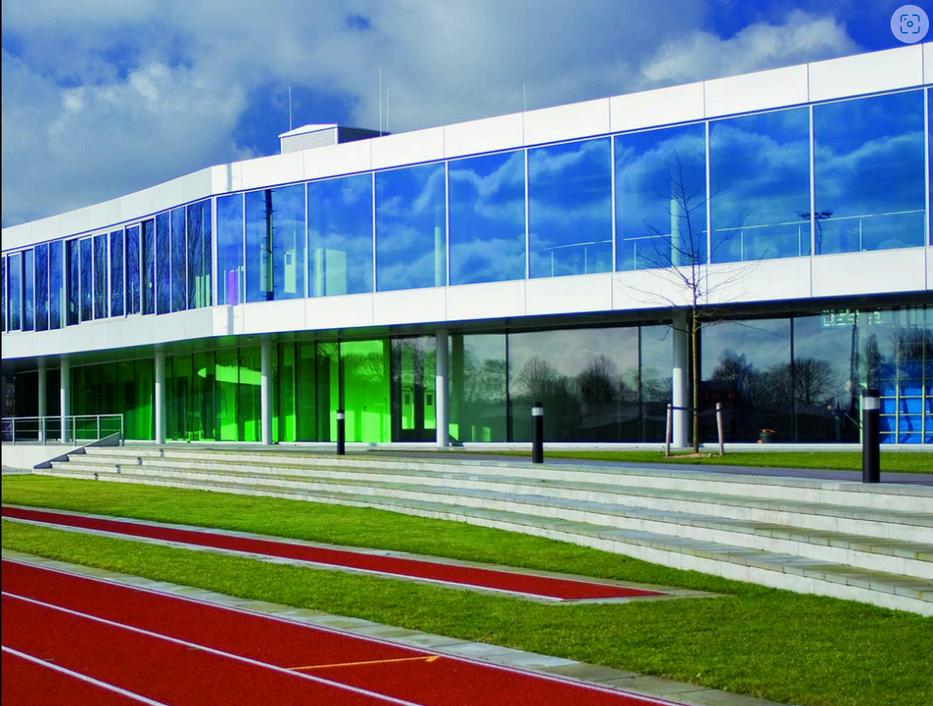
Dennis takes great pride in how his son Myron has grown. In spite of his challenges, Myron has become an inspiring role model for others. He has even played for the Paralympic football team and actively participates in the daily operations of Only Friends. Together with his father, they manage the club, creating a unique and heartwarming family narrative.


For Dennis, Only Friends is much more than just a sports club; it represents his life's passion and a means to assist others, a venture he created alongside his son. "Without the volunteers, this wouldn't be possible," he emphasizes. The club thrives on the dedication of 250 volunteers who ensure that athletes can enjoy their activities each day.
Only Friends goes beyond simply providing sports activities for children and young adults; the organization is continually evolving with new initiatives. One of the latest is the Parkinson's boxing program, specifically tailored for individuals with Parkinson's disease. Dennis conceived this idea after interacting with elderly individuals during his boxing lessons, discovering that boxing has beneficial effects on those with the condition. Following the Parkinson's boxing class, participants can also enjoy an additional fifteen minutes in the fitness room next door. An annual subscription is available for just €120.00, with a one-month notice period.
Dennis shares: “Recently, a group of women expressed interest in visiting Only Friends. As a surprise, I arranged for the Ajax players’ bus to pick them up in Ede. What an unforgettable experience! They arrived here one Wednesday afternoon with about 30 to 40 women in attendance. I conducted a presentation and organized a tour.”
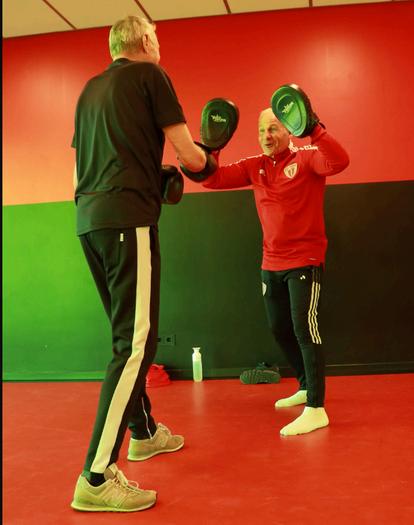

With Dennis Gebbink
For Dennis, it is clear that there is still much more to achieve. "We want to grow, but in a way that remains qualitatively good," he says. His goal is to continue to inspire people, regardless of their background or physical condition, and to offer them a place where they feel at home and can enjoy sports.
Dennis Gebbink:
We are so happy to share that our wonderful sports club at Only Friends has expanded to include Parkinson’s boxing! We have been doing this for about two months now and I want to express my deepest respect for everyone who is involved. It is amazing to see how our boxers enjoy the training, have fun together, and also receive messages that it really helps them. I am so grateful for that. It is a privilege to work with these heroes.
Would you like to join us? You are most welcome! The trainings take place every Monday from 10:30 to 11:30. In addition to parkinson boxing, we also organize a fun gathering for a larger group of seniors on Friday. This is not only for people with parkinson, but for everyone who wants to exercise and have fun. After the training we drink a cup of coffee together. It is a wonderful club to be a part of, so join us!
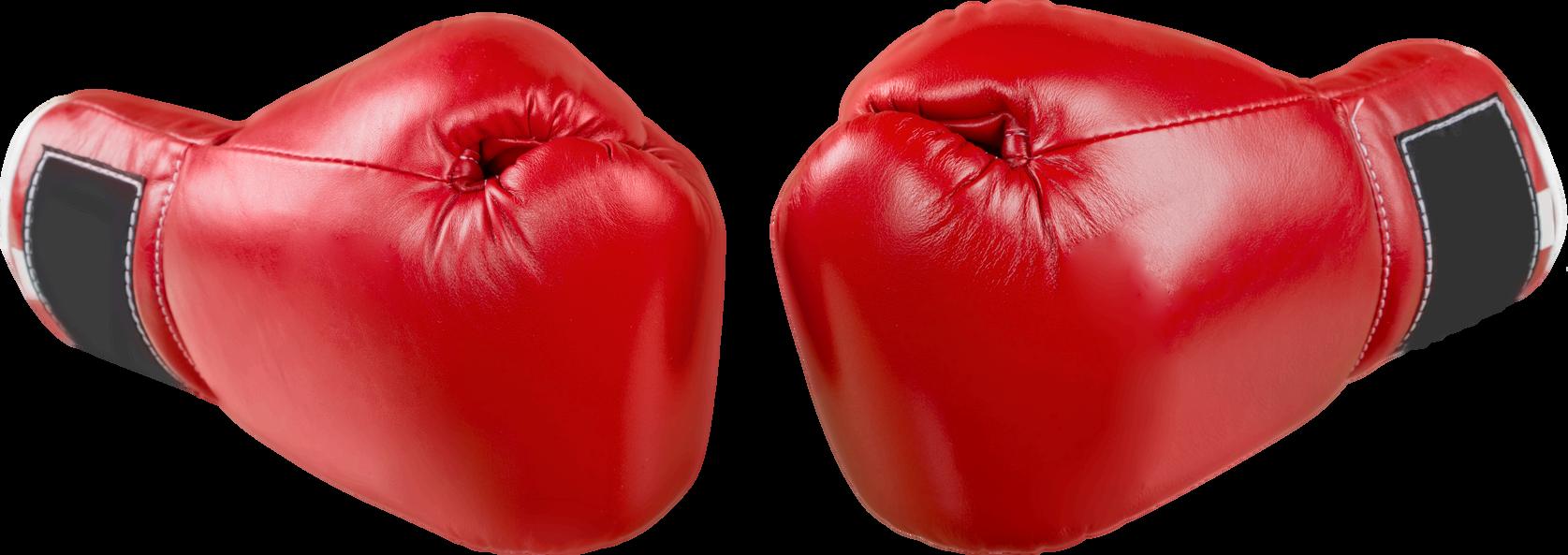


At Only Friends, we believe that everyone is welcome, no matter what challenges you face. Our sports club has blind footballers, kickboxers in wheelchairs, footballers with walkers, and climbers with one arm. It doesn’t matter what disability you have –with us you can play sports the way you are. Our slogan says it all: “You are good as you are”.
For participants from Amsterdam, the sports club is easily accessible, and there is even a shuttle service in Amsterdam-Noord. Children are often brought by government transport services. If you live further away, such as in The Hague, parents may have to arrange their own transport.
At Only Friends we create a community where everyone can participate and be themselves. So, whether you come for the sports or just for the fun, we welcome you!
Be sure to check out the website with the inspiring story of Dennis Gebbink, which also has a whole section on parkinson boxing. CLICK HERE.


Iamoptimistic, enjoythethingsI canstilldoandthat makemehappy. Iliketogooutand asaninterviewerI alwaysmeet interestingpeople forfascinating conversations.Often theseencounters leadto
valuablenewcontactsorconnections,whichgivesmeagoodfeeling.
Mypositivity,mydrive,mymotivation,myinspiration,myselfconfidenceandsimplydoingthethingsthatareimportanttome,give meenergy.WhenIgetupinthemorning,Ienthusiasticallycontinuewith mymagazine,organizingeventsorotherfunactivitiesthatcomemyway orthatjustoccurtome.

Dr. George Ackerman (Sharon's son) is from Brooklyn, N.Y. He currently resides in Florida and works in the fields of law, law enforcement, and education. On January 1, 2020, George lost his mother, Sharon Riff Ackerman, to Parkinson's disease.
Wendy van Wijk interviewed George Ackerman from TogetherforSharon about his new book Voices of Resilience:
In an inspiring conversation with George Ackerman, we explored his journey of resilience and his passion for creating more awareness for Parkinson’s. George shares his personal experiences that led him to become an author and to want to create more awareness. He talks about his books, interviews and his future plans.
George is keen to raise awareness and begins to talk about his great personal loss: his mother’s battle with Parkinson’s disease. Her passing was a turning point in his life and sparked a mission to raise awareness and connect with others facing similar challenges.
“When my mother passed away, I realized that her journey was also mine. Two years later, I came across the World Parkinson’s Congress and discovered that over 10 million people worldwide are living with Parkinson’s. That revelation made me realize that it wasn’t just a family issue; it affects families all over the world. This motivated me to start a new chapter—interviewing nearly a thousand people worldwide to understand how Parkinson’s affects different lives,” says George.
Through these conversations, George came to understand that Parkinson’s doesn’t discriminate; it affects individuals from all walks of life and impacts entire families. His passion for sharing these diverse experiences led to the creation of his book series, which highlights the challenges and triumphs of people living with the disease, and their families.
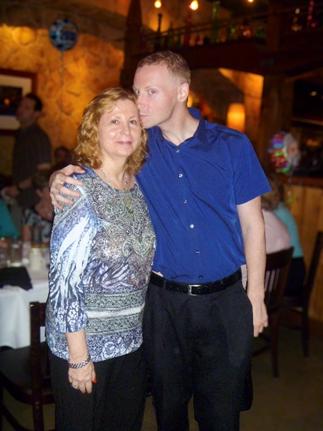

What do readers take away from your book that gives them more positivity?
George hopes that readers will become more aware and realize that they are never truly alone in this battle. The books feature interviews with advocates, people living with Parkinson’s and their families, who are all part of this journey.
"The most important message is that no one is ever truly alone. As a caregiver, I felt isolated, and my mother felt alone in her battle with Parkinson's. But as you read this book, you will discover that there are countless others advocates, people living with this disease, and great organizations working tirelessly to bring about change. The key message is that no one is isolated. Through these journeys, you can connect with remarkable people like yourself. I hope that your magazine will help to highlight their stories; it's no longer about me or us, but about everyone involved in making a difference. By exploring these stories, you can connect with extraordinary people. The central message remains the same: no one is alone. Many organizations and individuals are working hard to bring about change, and through their stories you will see the power of togetherness," George explains.
Although the series is still in its early stages, George plans to release a new edition each summer. To enhance the reading experience and keep it affordable, he has chosen to split the series into multiple volumes, with each volume containing approximately 300 pages of inspiring stories that promote hope and positivity.
George’s enthusiasm for sharing these stories is evident when he talks about the efforts he has made to self-publish his books. He acknowledges the challenges and costs involved, but believes that raising awareness is worth the investment.
"I wanted the book to be in color. Black and white takes away from the beauty of the person and the essence I wanted to capture. For now, I've kept the price affordable to ensure the stories reach as many people as possible," he shares. This book will soon be released in two parts, with a focus on accessibility, while maintaining the core messages of unity and support.
Looking ahead, George is considering future projects that extend beyond the current series, including an initiative that addresses the connection between policing, law, and Parkinson’s awareness. His goal is to incorporate Parkinson’s education into police training across the United States. “This project focuses on the relationship between policing and Parkinson’s, and my dream is to bring it to Congress. We are working to engage the Michael J. Fox Foundation’s Policy Department in legislative efforts to introduce Parkinson’s training into police academies across the country. Right now, there is no Parkinson’s training for law enforcement, which could save lives and increase awareness for officers. I am very excited about this project and hope to have it out next year.”
Whichinterviewsmadethebiggestimpressiononyou?
WhenGeorgereflectsontheinterviews,hementionstheincrediblestorieshe hasdiscovered:"Itisenlighteningtomeetsomanyextraordinary individuals.Ioftensaythattheonlydreamthatreallybreaksmyheartis thestorythatIdon'tknowabout. herearecountlesspeopledoingamazing thingsintheworld,likeyouandyour magazine.Justafewweeksago,agroupof mentraveledtheworldtoraisemoneyfor theMichaelJ.FoxFoundation.Their dedicationinspiresmetokeepgoing."
Despitehisownhealthstruggles,George remainscommittedtoraisingawareness worldwide."Ican'tbringmymotherback, butIwanttomakesurethatnooneelsehas towatchtheirlovedonessufferalone.The mostimportantmessageisthatnooneis everalone.Asacaregiver,Ifeltisolated.My mother,wholivedwithParkinson's,feltthe same.Readingthebook,youwillseethat manyothers-whethertheyareadvocates, peoplewithParkinson'sorlarge organizations-continuetofighttirelessly. Thekeymessageisthatnooneisalone.
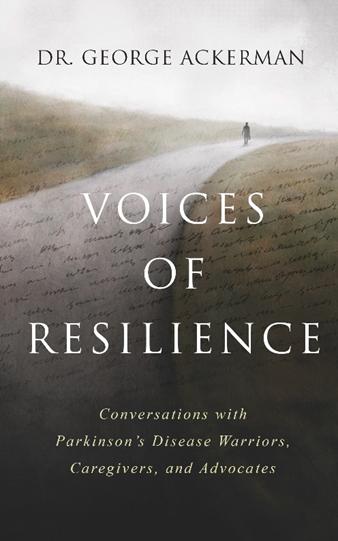

Readingthesestorieshelpsyouconnectwithamazingpeoplelikeyou.Ihope yourmagazinegetsmorerecognitionforallthehardworkyouputintoit.It’s notjustaboutmeorusanymore;it’saboutthecollectiveefforttomakea differenceandlearnabouttheincredible300or400peopleinvolvedinthis mission.Ifeellikewe’remakingprogressinchangingtheworldforthem.
Iwouldsaythemostimportantruleistotakecareofyourownhealthasa caregiverandadvocate,althoughIoftenforgetthat.Ibelievethatthereare peoplewhofeelalone,andifwecanreachthem-eventhroughthis conversation-wecanactuallychangetheirlives.Sacrificeiskey;mymother taughtmethiswhileIwasgrowingup.Itoftenrequiresgivingupcertain thingstohelpothers.Ihopethatacurecomessoon,butuntilthenwemust keepfighting.
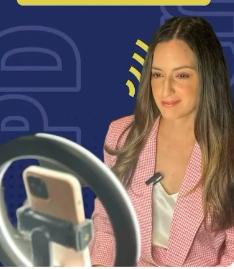
My wife is amazing. Without her support during my mother’s journey, I would never have made it this far. Even now, as an advocate, there are days that are incredibly challenging. You know, my recent surgeries didn’t go as I had hoped. When I was in the hospital, I kept my phone on for the sake of Parkinson’s, which is something that is so important to me. I think about what my mother went through every day, and seeing others continue their fight motivates me to help even more. There’s just not enough time in the day to connect with everyone, but I’m truly excited to talk to you today. There’s so much going on; there are so many remarkable people. It’s an honor to call you a friend. I’m grateful that you’re in the book.
George’s efforts extend beyond his books. He is passionately involved in the ongoing fight to find a cure for Parkinson’s and is dedicated to raising awareness through his website, TogetherforSharon, and his podcast, which has become a vital platform for individuals to share their stories.
“I want everyone to know that they are never alone,” George says. “Together, our voices are amplified. By sharing our experiences, we can reach more people, help more families, and create a more connected community.”
George:"WendymadeagreatvideothatI'vesharedeverywhere.I'veeven gottenemailsfrompeoplesayingtheywentaheadandorderedthebookafter watchingthevideo."
GeorgeacknowledgesthatheandWendyworkcloselytogether,especiallyin gettingtheirmessageoutandcreatingawareness.“WendyandIare definitelyateaminthisfight,”saysGeorge,emphasizingtheimportanceof workingtogethertocreateawareness.

ForreaderswhowouldliketosupportGeorge'smission,hisfirstbookcanbe foundatTogetherforSharon.cominthe"books"section,whereyoucanlearn howtoorderthefirstvolume.Georgeplanstokeepthepricesofhisbooksas lowaspossible,whileencouragingeveryonetospreadtheword.
"Idothisasavolunteer,"hesays."Allprofitsaredonatedtoorganizationslike theMichaelJ.FoxFoundationandtheParkinson'sFoundation.It'salaborof loveandpurpose."
George:“Iwanteveryonetosupportyouandsubscribetoyourmagazine.We havelinkeditonmywebsite,andIamheretohelpyouinanywayIcan.To everyonelistening,wesendourloveandsupport.Remember,youarenever alone.WendyandIwilldefinitelycontinuetobeateaminthisfight;thereis stillalotofworktobedone.Youarenottheonlyonedealingwiththis.”

Despite numerous challenges, George remains steadfast in his commitment to raising awareness, reminding us that the fight against Parkinson’s is a collective effort. As he focuses on publishing new books, raising awareness, and supporting others, his dedication remains unwavering.
"We send our love and support to everyone," he concludes with an encouraging message. "You are never alone. The collective work we do is what really makes a difference."
*George Ackerman's journey to create awareness is an example of the power of positivity, resilience, and community. For more information about his initiatives and upcoming books, visit his website, TogetherforSharon.com.
Thank you George for sharing your story with Wendy's Parkinson Journey. I wish you the best of luck with your book, which aims to raise money for Parkinson's research.
The only dream that really breaks my heart is the dream I'm not aware of.
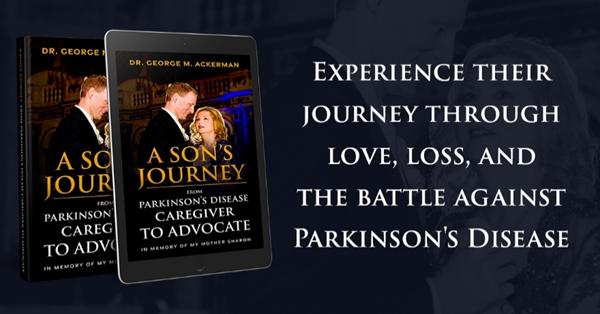


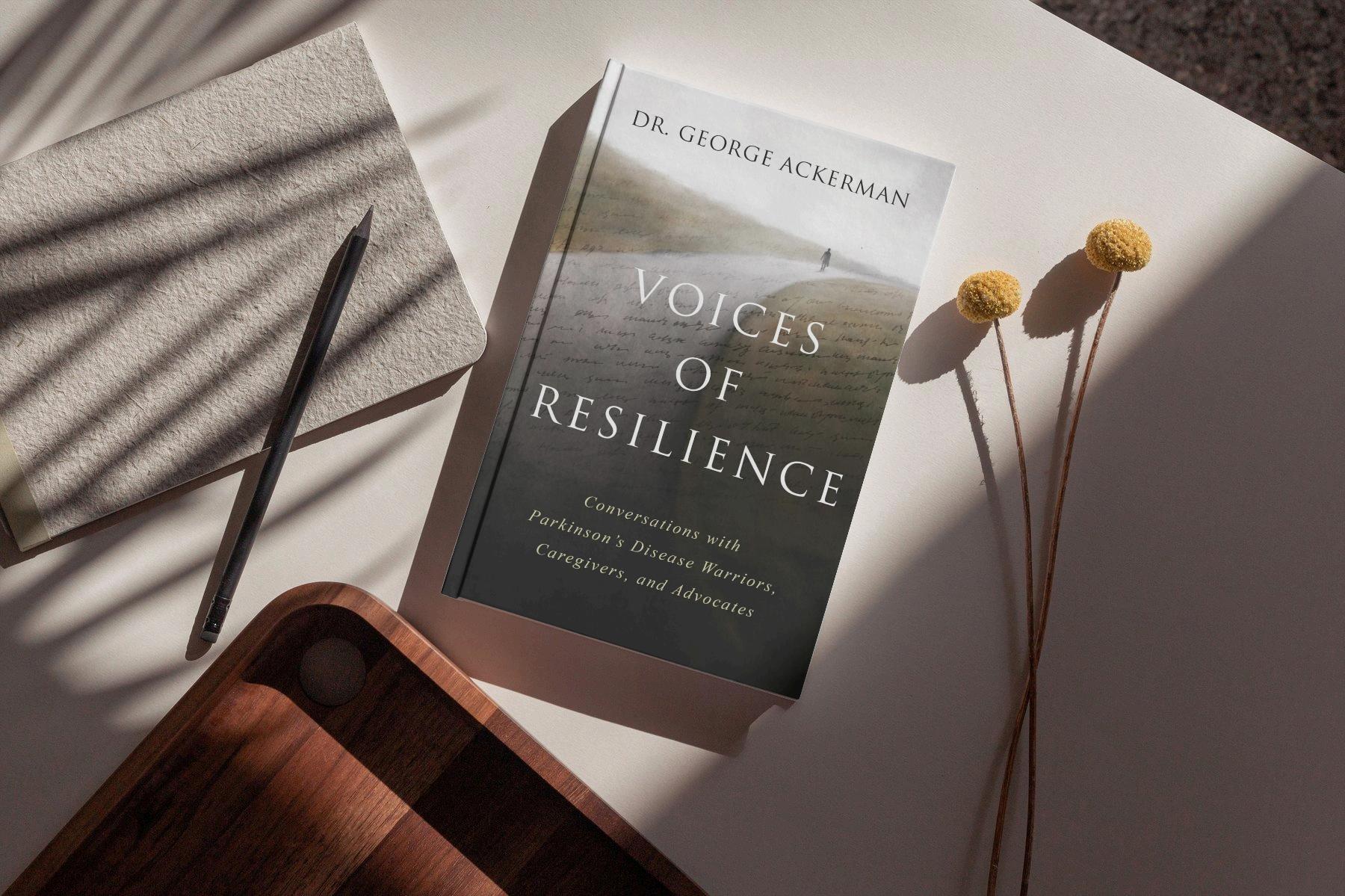
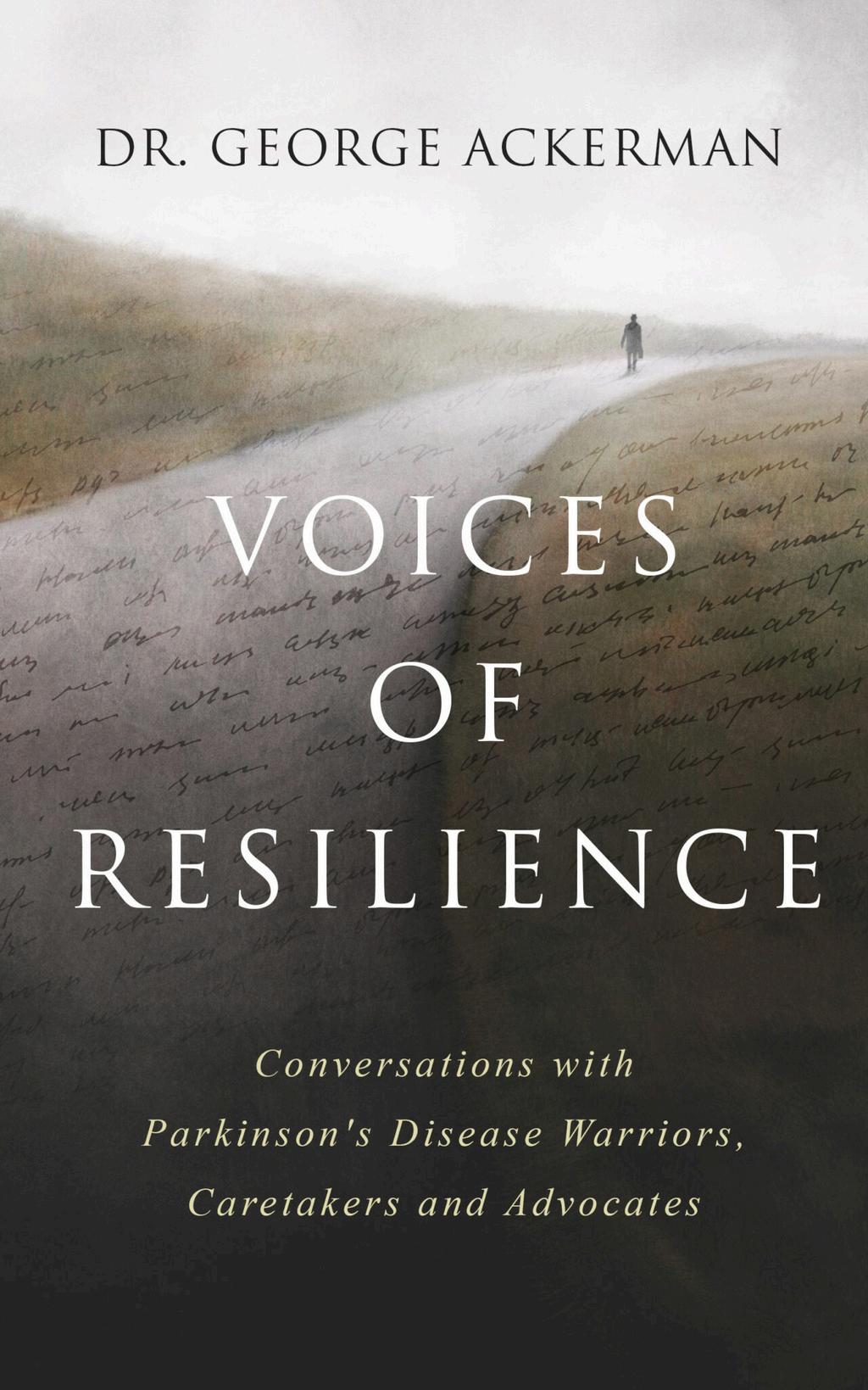


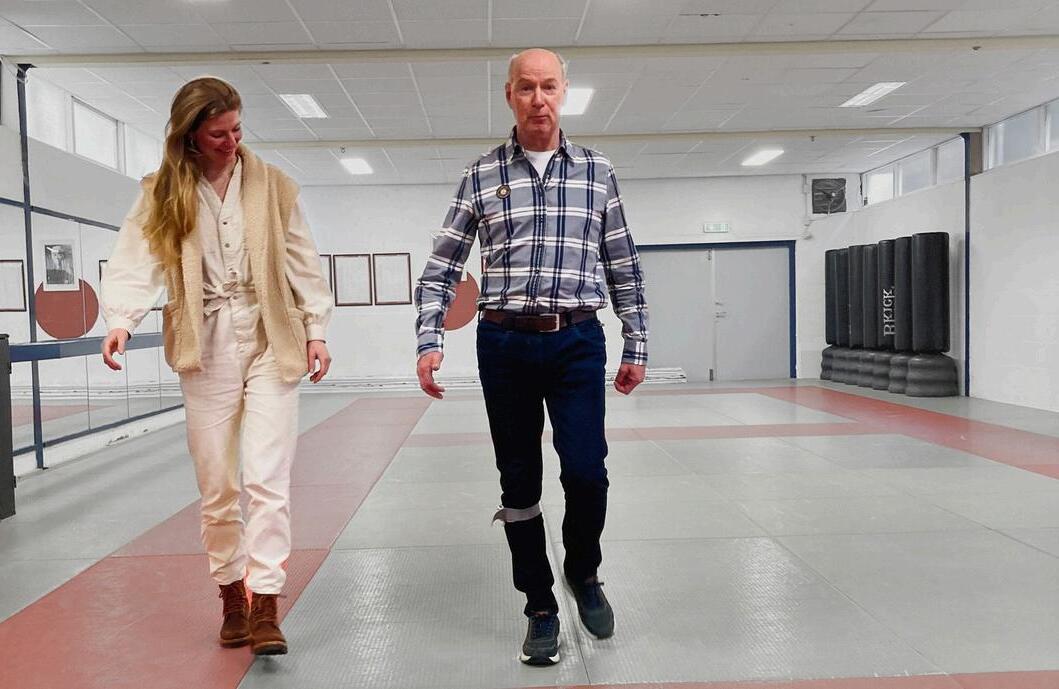
Doyouexperiencefreezingor festinationwhilewalking?Haveyou everfoundyourselfabruptly immobilizedorunexpectedly startingtowalkfaster?
With the Cue2walk, you can reclaim your independence while walking. This assistance device is tailored to your specific situation and needs, providing support exactly when you need it. As a result, you can rediscover the confidence to move freely once more.









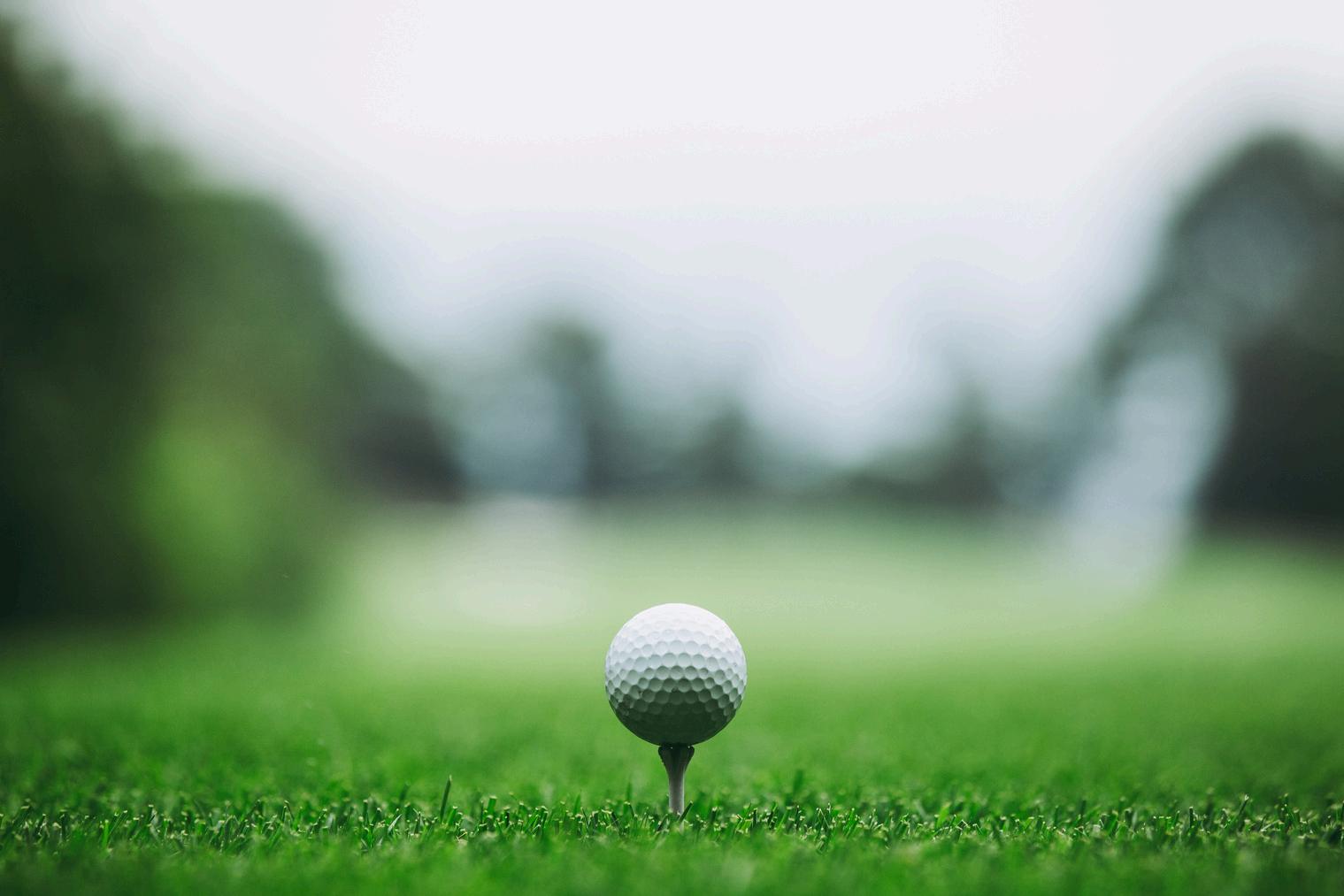


“I
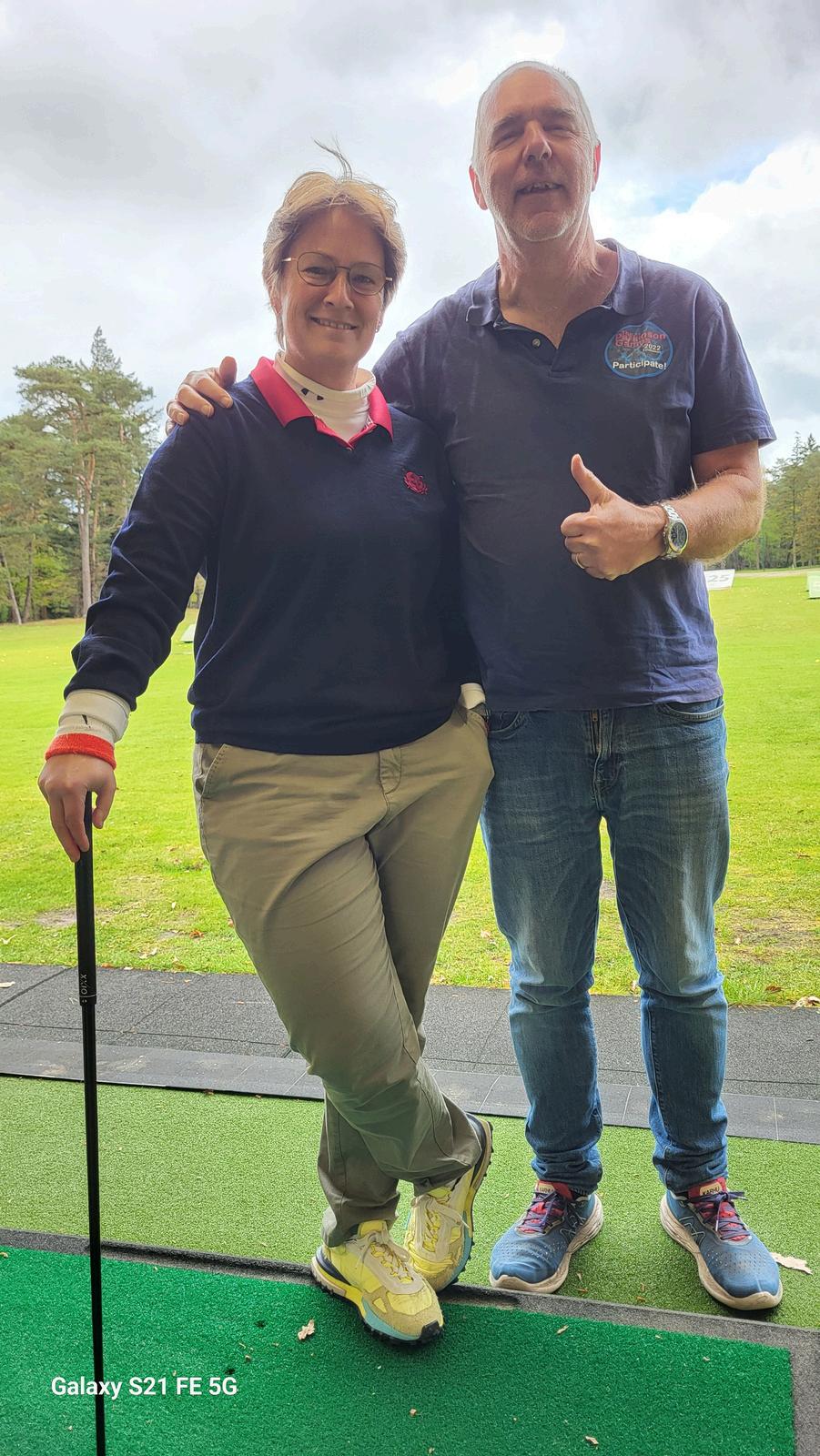
Marcella Neggers (49), national coach of the Dutch Team for disabled golfers: “I want to give people with a physical disability the opportunity to get acquainted with golf and to experience that everyone can play this sport at his or her level.”
Ruud Overes (62) is known to many people with Parkinson's. He founded Parkinson2Beat and organizes golf and other sports events in which everyone can participate. Raising funds to eradicate Parkinson's in the long term by conducting fundamental research and in the short term getting people with Parkinson's to exercise every day.
Also visit www.parkinson2beat.nl
Ruud: “I heard about Marcella's great plans when I spoke to her at The Dutch during the European Championships for disabled people, and of course I didn't want to miss this opportunity for people who, like me, live with Parkinson's disease.”

Marcella and Ruud both have a passion for golf and understand each other well what it does for them because of their own condition. Marcella wants to offer her training to all people with a physical disability, such as: Parkinson's disease, MS, a spinal cord injury, rheumatism, a defect in one of your limbs, and other physical conditions.
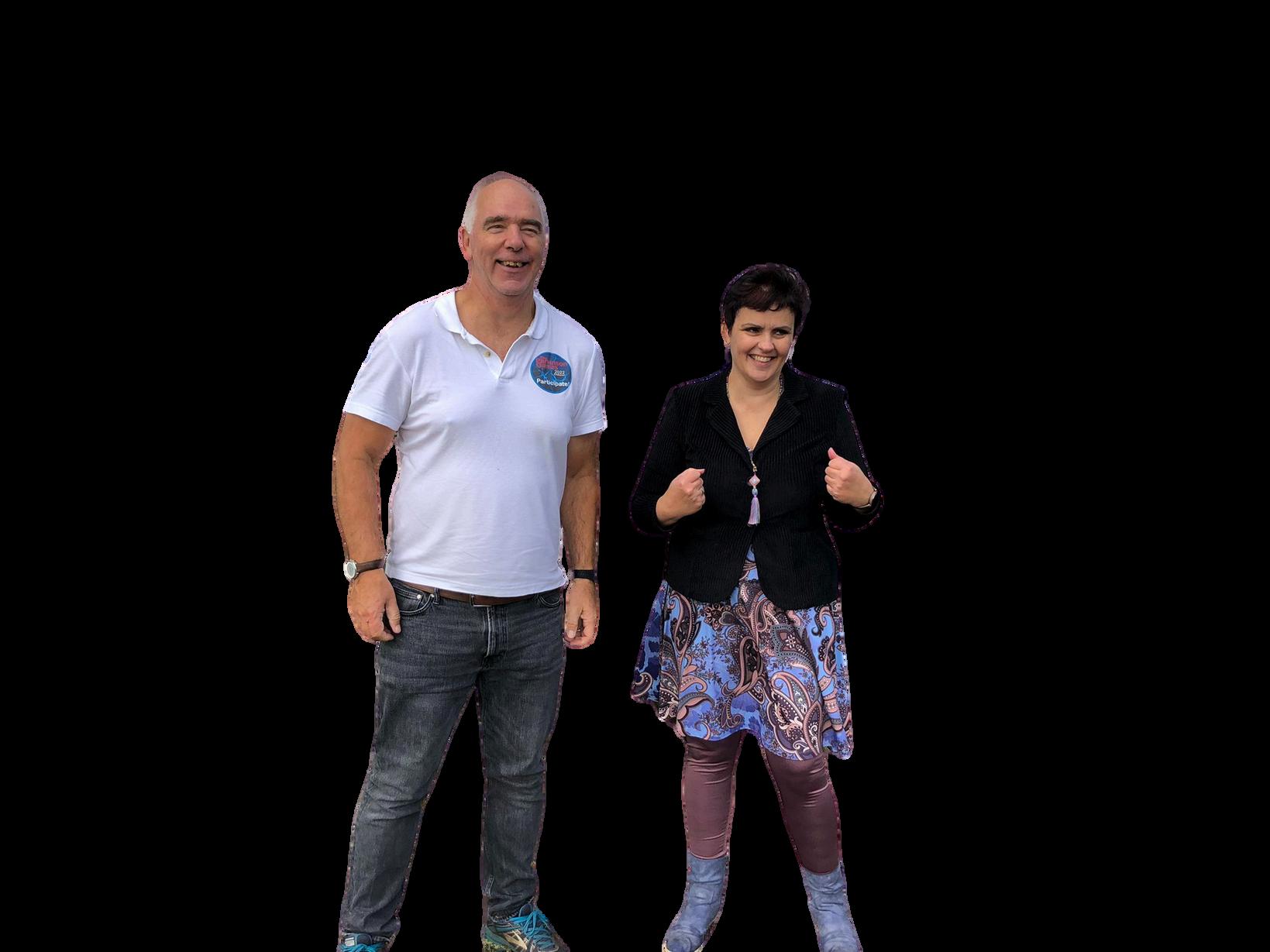
Ruud immediately seized this opportunity and followed the training. An opportunity that he would like to give to others. Through Ruud, a number of people with Parkinson's registered. "Golf is a sport where people often think, oh that's not for me. But if they get the chance, it turns out to be a really fun sport. You are outdoors and you have exercise and fun together with the other people on the course."
If you want to teach someone how to play golf, Marcella is the right person. Marcella herself has a chronic condition and knows what it is like to deal with it. She also knows from her own experience what golf can do for someone. As a top golfer, she can teach you all the tricks of this beautiful sport.

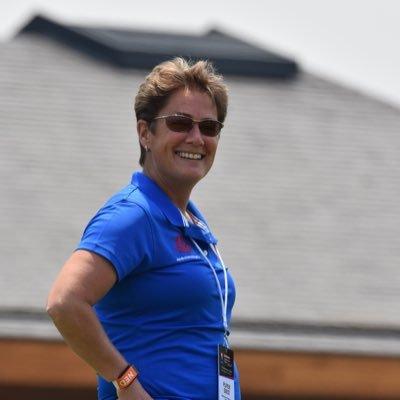
Marcella Neggers (49 years old) has been living with rheumatoid arthritis since she was 12 and has experienced first-hand what golf does for her. She used to be a good hockey player, but this sport was soon no longer possible due to her condition and she started looking for another sport. The step to golf was not so strange, because her family was already regularly seen on the course. Marcella started to find out whether that would be something for her, turned out to be a good player and started to specialize more and more in it. In all her enthusiasm and dedication, she also ended up in the Dutch National Golf Team, with which she participated in the Dutch championships. For example, Marcella has already won the Dutch Championship for people with a physical disability a few times.
In 2016, she started focusing more on disabled golf. She started playing in the teamNL for disabled golf of the NGF. They quickly saw Marcella as a good national coach. Marcella: “They asked me if I wanted to l eave the team and become national coach. I thought that was a great challenge and I took it on.” Now, a few years later, the idea arose to set up the DEGA (Disabled Eindhoven Golf Academy). An excellent opportunity for Marcella to commit herself even more broadly to people with a physical disability. She then also became chair of the BMVG Foundation (Promotion of Disabled Golf).
Click here for the BMVG website.
!For the BMVG it is important to create the broadest possible social support. Golf has proven to be the ideal (rehabilitation) sport and suitable for almost all forms of physical and mental limitations. Golf improves your self-esteem, self-confidence, self-respect, self-reliance and finally social well-being. Furthermore, with this ideal sport you are always in the fresh air and you have many social contacts.
Marcella says that the Eindhovensche Golf is completely open to this wonderful initiative and fully supports it by, among other things, making the facilities at the Eindhovensche Golf available. She is very grateful to the club for this.
Marcella: “I am very happy to be able to work at this fantastic club. It is known as the most beautiful golf club in the south. What is also unique is that the training can always continue, because there is enough space and facilities in the enormous indoor facility for giving golf lessons. And as soon as the weather outside improves a bit, we are outside again. Of course, the location is wheelchair accessible. I also have a paragolfer at my disposal, so that even people with a spinal cord injury can participate in the training. People with various conditions, such as Parkinson's disease, spinal cord injury and noncongenital brain injury had registered for the spring course.

Do you enjoy playing golf but are hesitant to take the first step?
Trying something new can be daunting. Don’t hesitate to call us, we’d love to share our own golfing experiences with you. In addition, we’ll join you for your first golf lesson, so you can explore at your leisure and get some handy tips from us. Together, we’ll make sure your first golfing experience is a memorable one.

A few year of this art
Overes, or Groene H people with quickly fu period and Everyone thought th enjoyed th
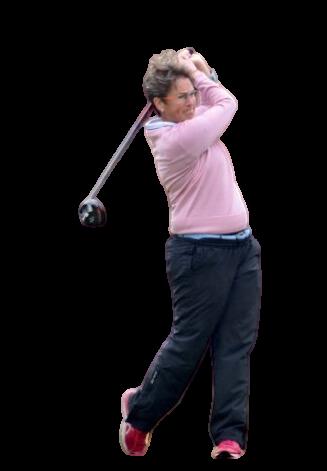
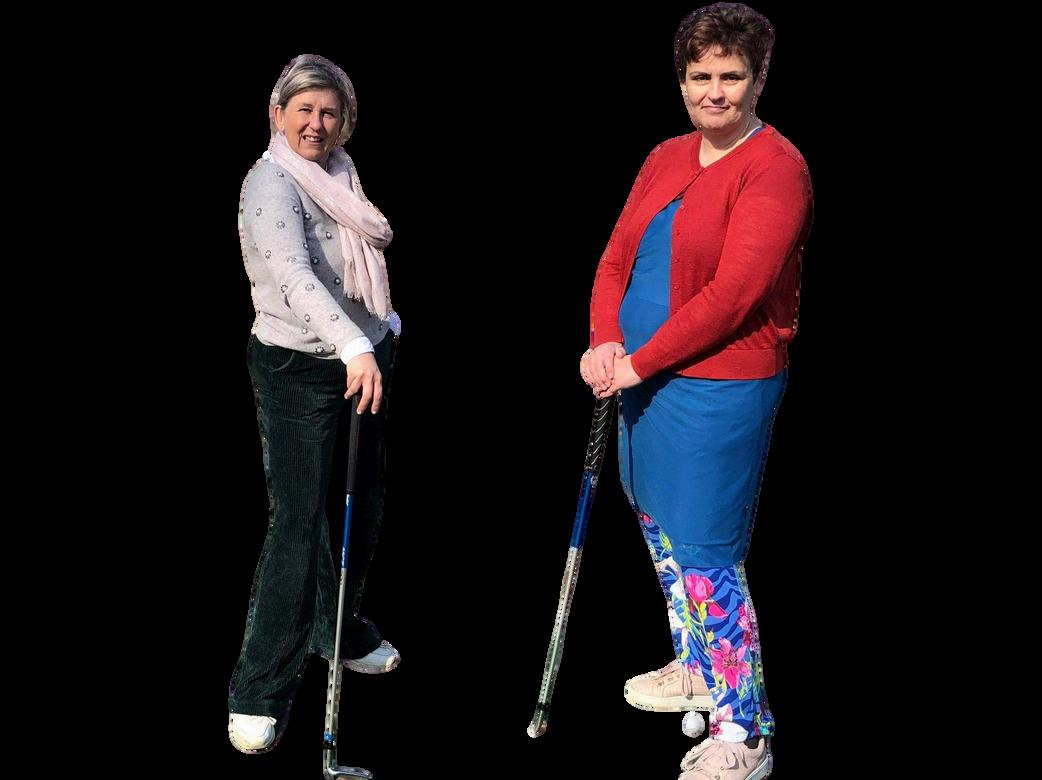
lf and a physical condition go together?
: “I am proof myself and have experienced d golf is for me. When playing golf, you are onstantly moving for a long time. You are trated. You practice your fine motor skills lti-task. And what is more fun than doing ng with a ball. Everything that you use to all is fun. It gives more experience and it is ly fun to experience this together within a f people. You enjoy it for each other when t the ball in such a way that everyone is You live together in the game and through beautiful moments, that also gives you a, which in turn produces dopamine. And golf in the way that suits you best, so you determine your own load.”
Marcella: “I am living proof that playing golf at a high level is possible despite a chronic illness! My passion for golf gives me a lot and a large part of my life is therefore dedicated to golf. If you have a passion for something, I definitely recommend you to do something with it.”

Marcella: I would really like it if there could be 2 of these sessions every year and that this would become an annual event.” “If this is your first introductory training, you probably won’t be able to go out on the track alone right away. You need certain basic skills for that and that takes time. It is therefore necessary to attend all 10 lessons.”
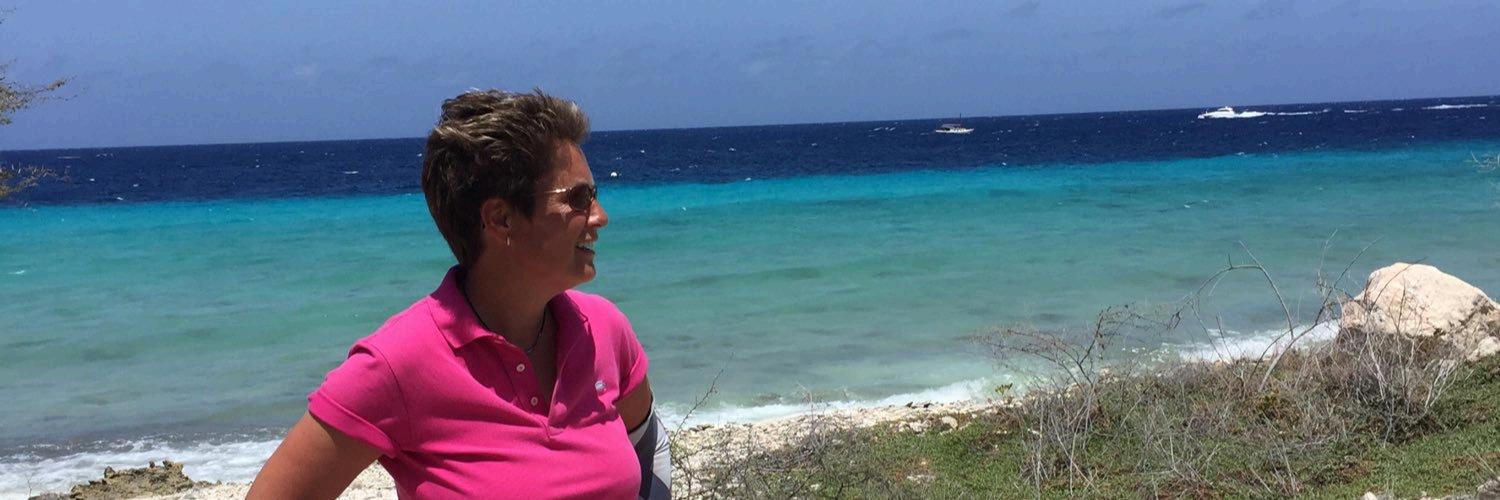
Neggers


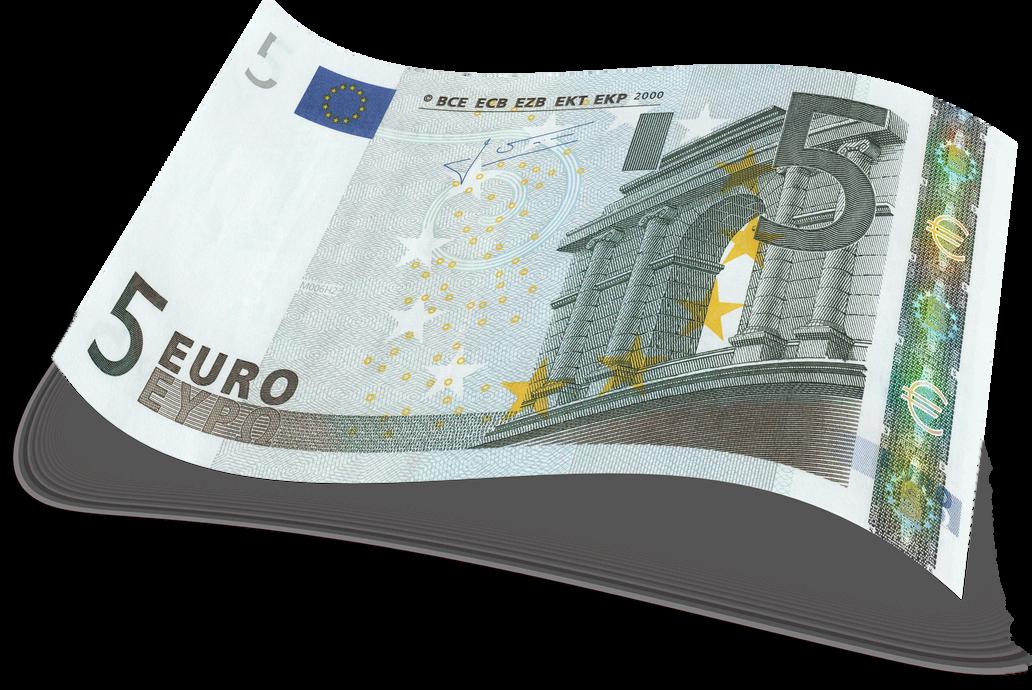
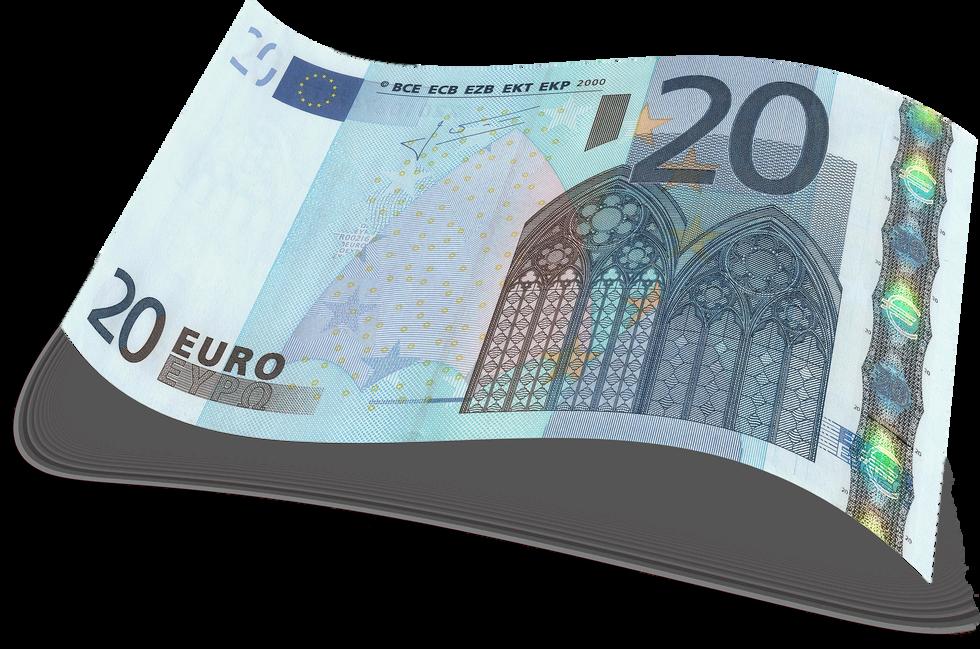
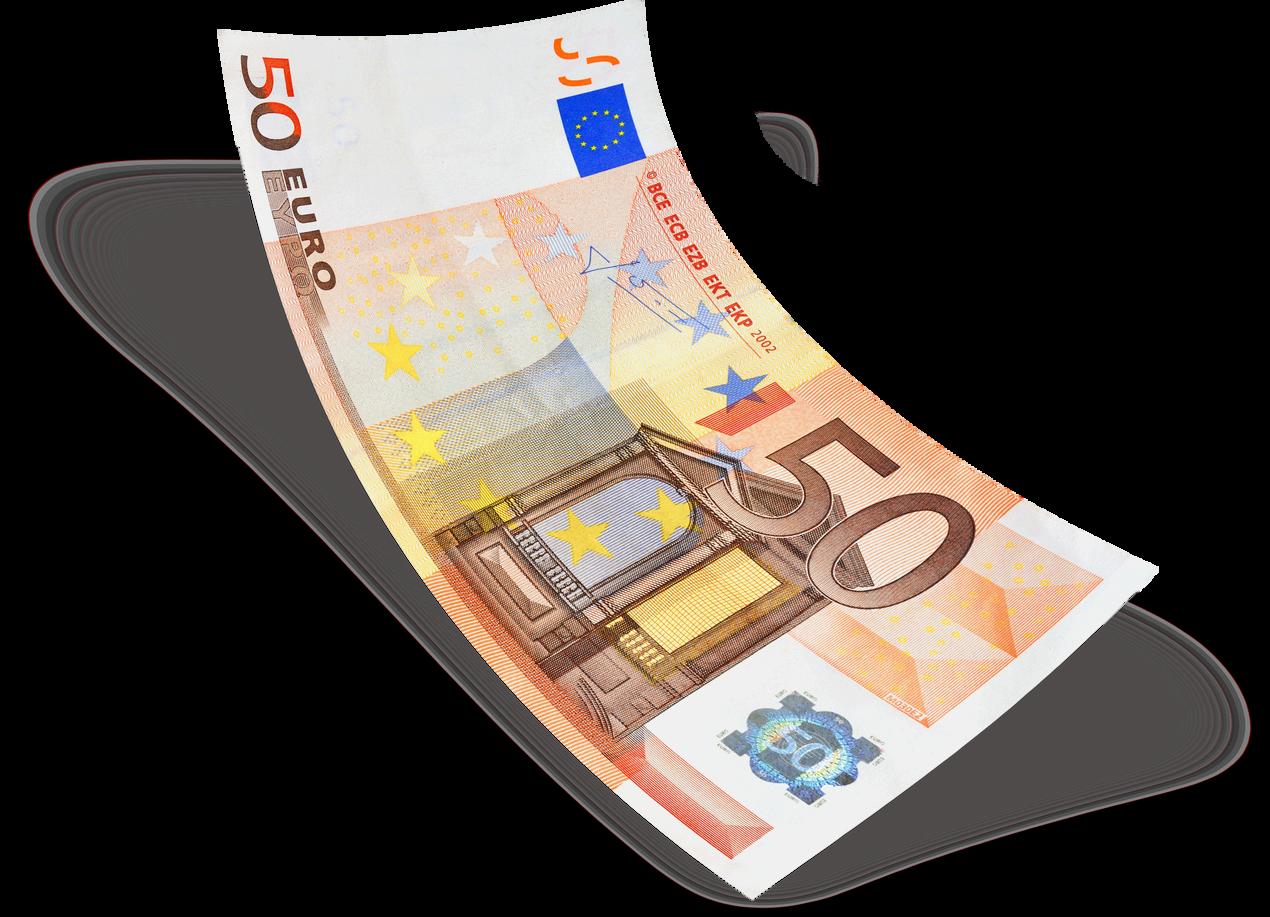
EindhovenGolfValkenswaard Eindhovenseweg300
10 inspiring lessons of 1.5 hours for only €75 (€7.50 per lesson!)
Follow Parkinson2Beat for information about the next golf course given by Marcella Neggers.
Anyone can learn to play golf and it's FUN too!







I advise you to register quickly. The dates for spring 2025 are already known and FULL = FULL. Scan the QR code for the registration form.
As soon as the organization receives this form, they will process it and you will receive confirmation from the board.

In addition, we also have more experienced participants who participate and can still learn a lot from Marcella about this beautiful sport.
Ruud: “I can highly recommend the course. I am also participating and I will definitely visit the other groups where people with Parkinson's participate.”
Wendy's Parkinson Journey #9 33
Marcella: “I look forward to meeting you at the Eindhoven Golf Club in Valkenswaard. I’m excited!”



After my Parkinson's diagnosis in 2017, I started my personal journey to support and inspire others. This led to the creation of the magazine Enjoy Life, an online magazine in which I share personal stories of people with the same diagnosis, offer scientific insights, and provide a platform to positively inspire and support each other.
The experience stories provide positivity, connection and tips. The stories are nice to read for both newly diagnosed and people who have been diagnosed for a longer period. The magazine is also popular with the people around us, our informal caregivers, researchers, our healthcare providers and it provides more awareness and knowledge about Parkinson's disease and what this disease does to you. By reading the magazine you get to know each other who live with this disease and how they deal with specific symptoms. People tell how they can stay positive, what makes them happy and what advice they can give you. Stories that can inspire you to do things differently, but also the feeling of strengthening each other to be there for each other. A magazine where we can stand up for each other and connect with each other. Share the stories with each other, feel connected and gain more understanding.”
Questions, compliments, complaints or spotted an error? For tips, interview requests, article submissions or advertisement placement. Email to info@jowija.nl
Wendy's Parkinson Journey ENJOY LIFE. is part of: Jowija Marketing & Events.
Disclaimer: 'Wedy's Parkinson Journey Enjoy Life' has been compiled with the utmost care. However, Jowija Marketing & Events is not liable for any direct or indirect damage that may arise from the use of the information provided herein. No rights can be derived from the content of this Enjoy Life magazine and no claims can be made.
